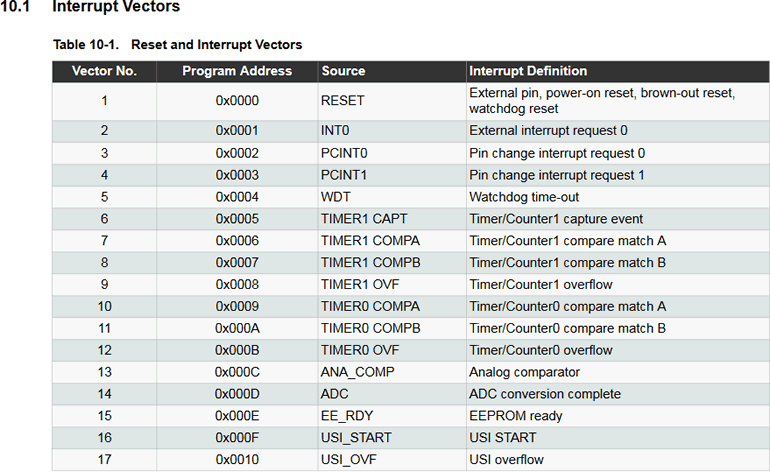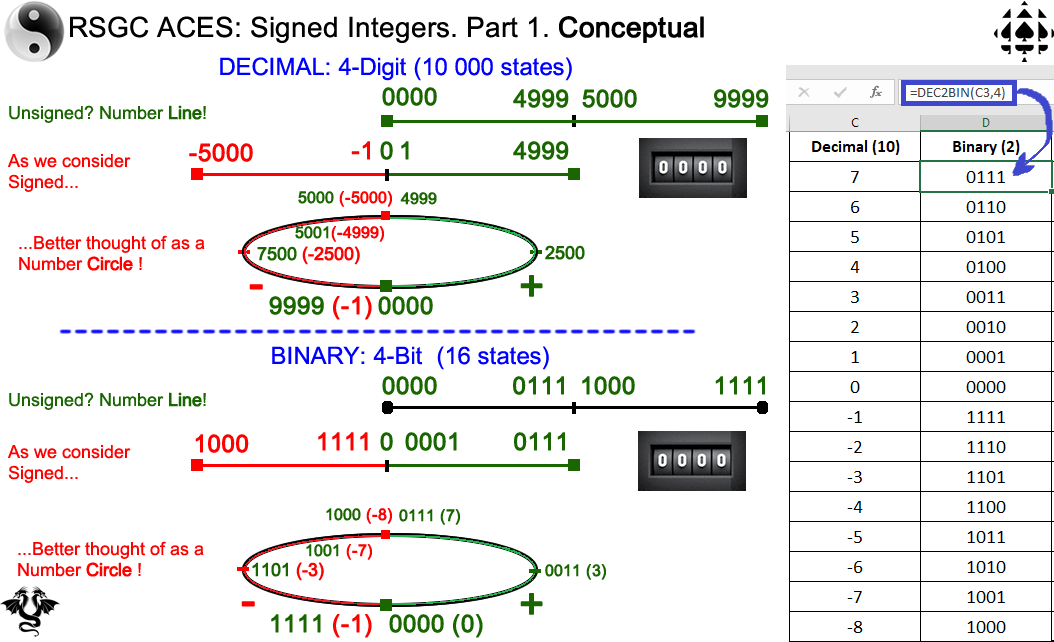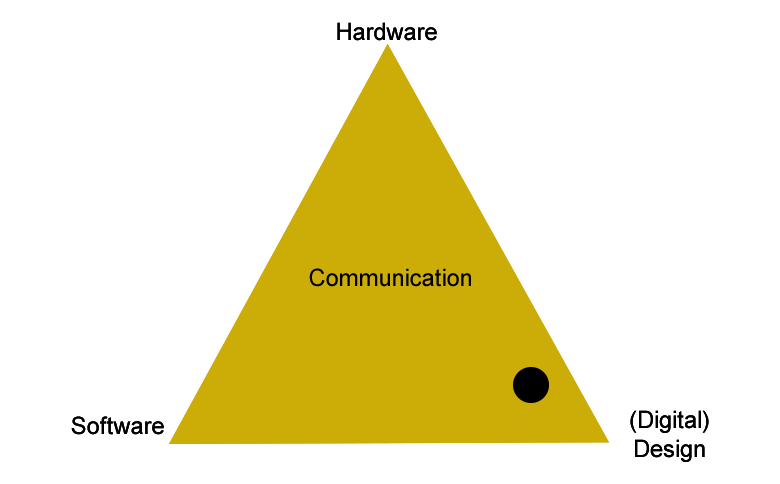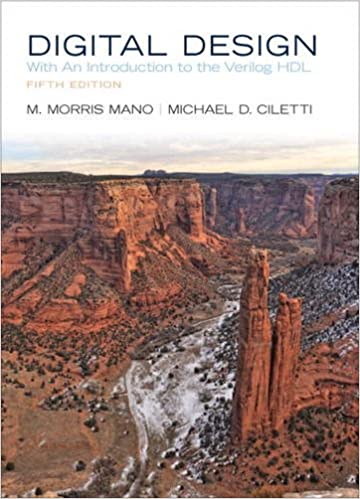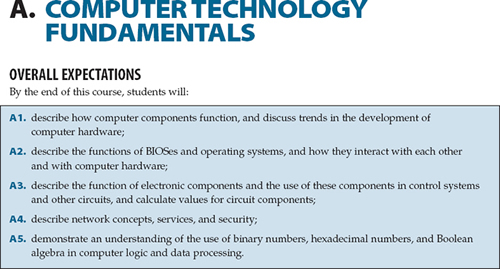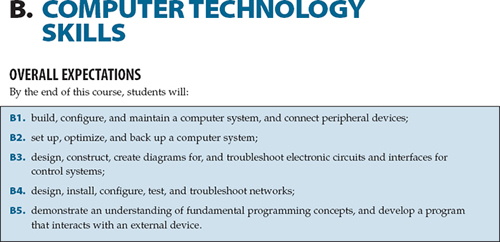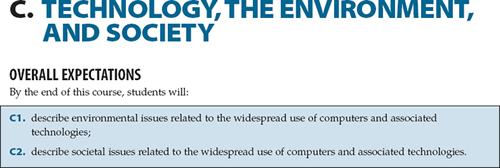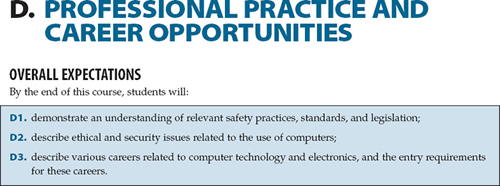
May 29
Last Class
Final DER edits/preparation
SA, TA, AE, HMS
RM, JR, ES, JS
May 25

ISP Presentations
RM, AE, HMS, JR
May 23

ISP Presentations
SA, TA, ES, JS
May 18
Missed Class: Grad Skip Day
May 16
May 12
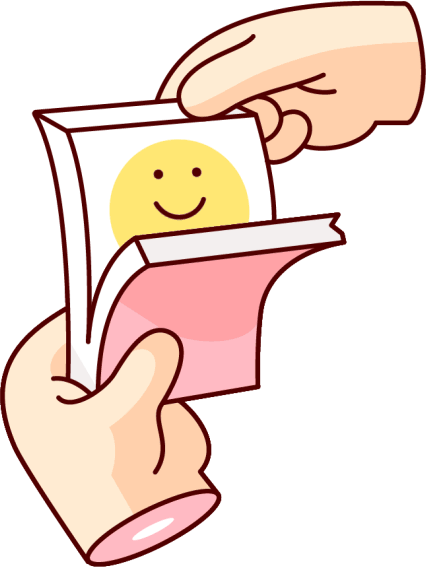
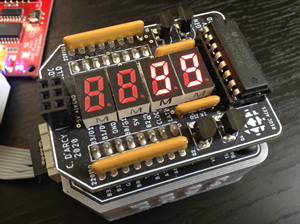
Loading SRAM
from Flash
May 10
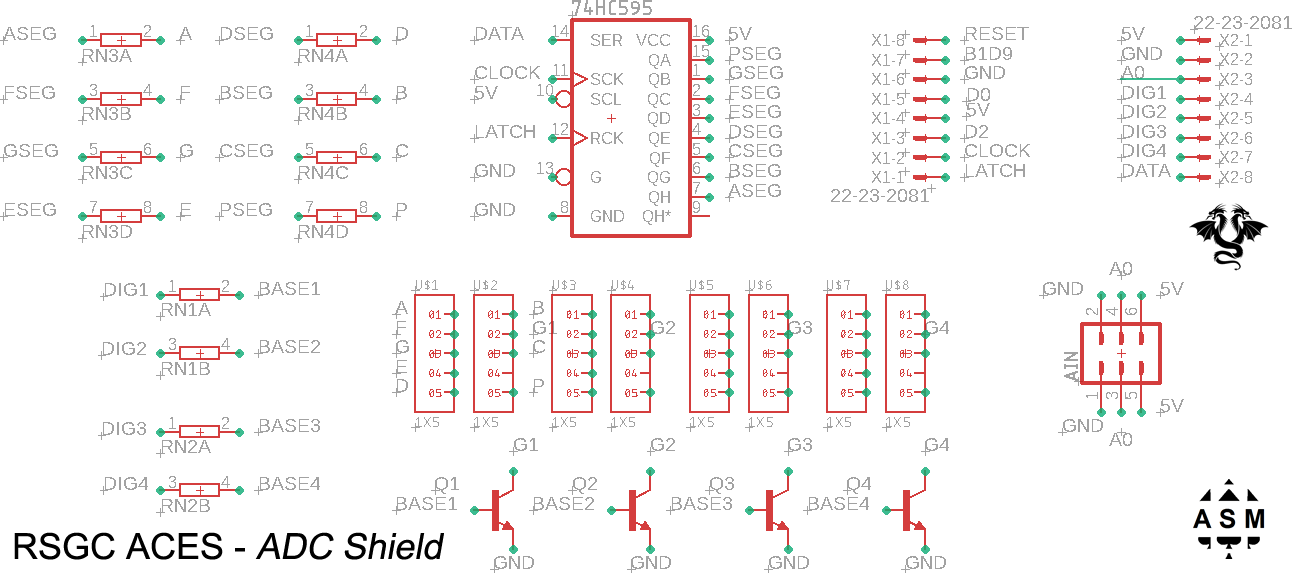
SINGLE-Digit Display (Shiftout)
(Array
Addressing)
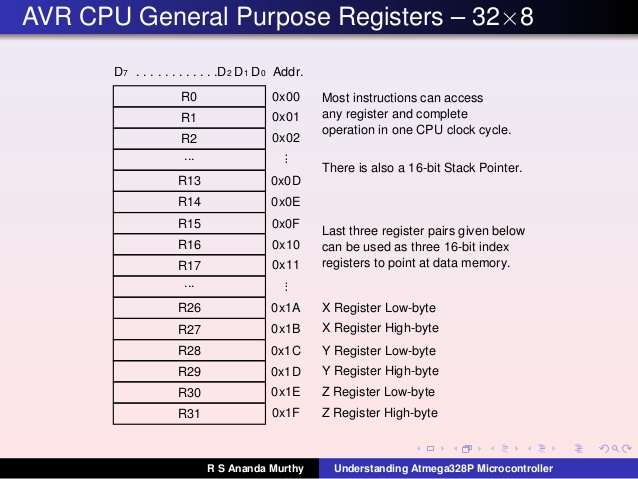
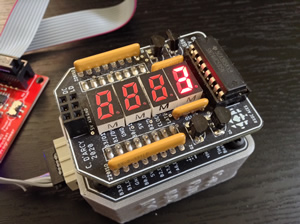
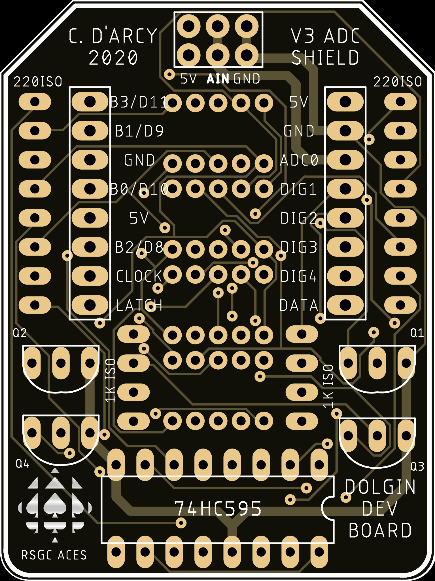
May 8
CHUMP Repatriation
May 4
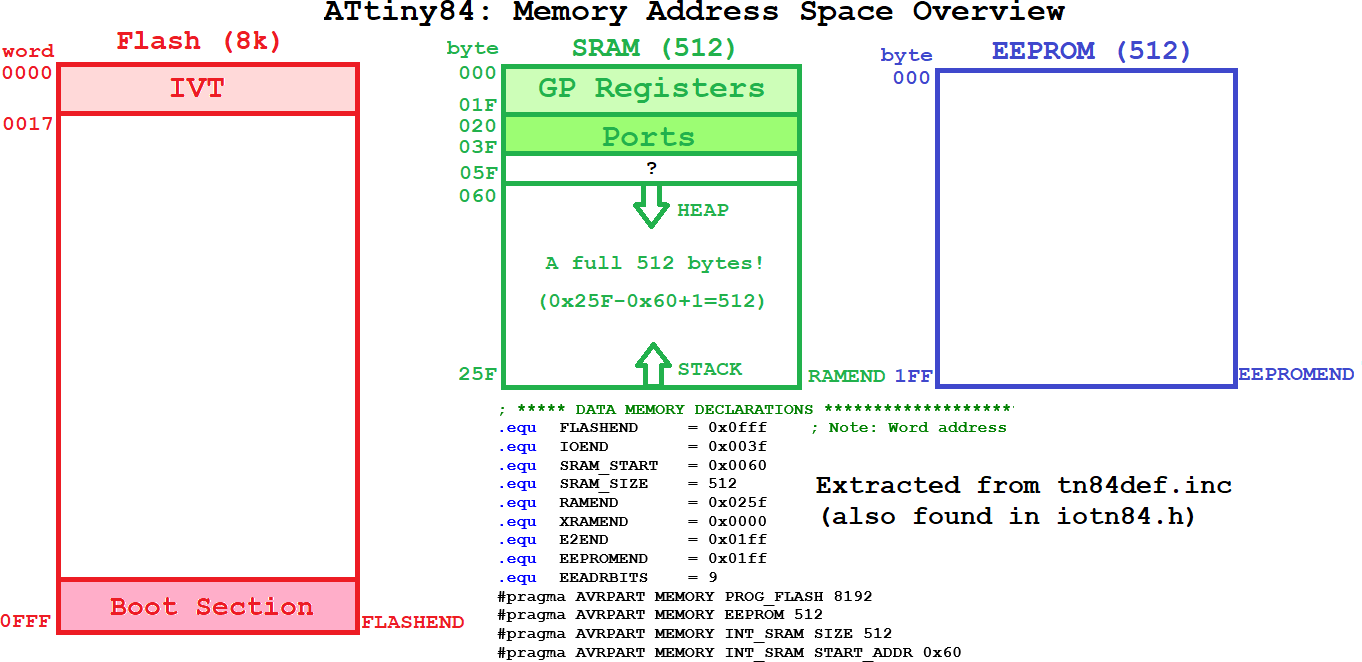
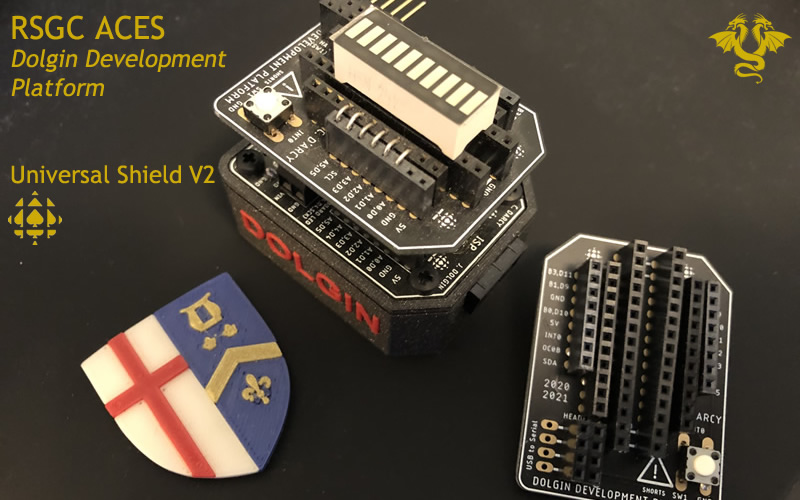
Assembly  s
s
- Loops
- Decisions (compare)
- Branching
- Functions
- Libraries (includes)

May 2
Guidance and Support
for
shiftout: Morland Bargraph
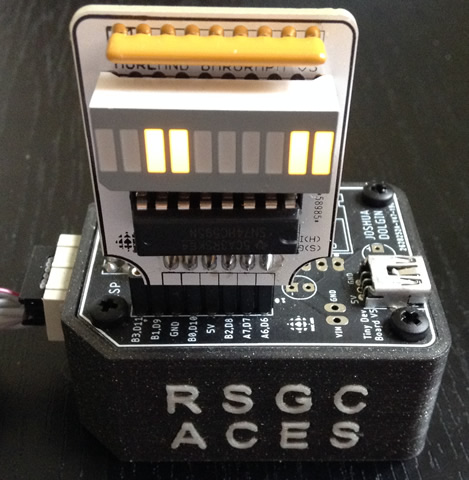
Apr 28

.db, mov, movw
and, lpm
Dolgin > Schaffer > Morland 1
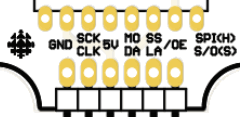
Assembly  s
s
- Loops
- Decisions (compare)
- Branching
- Functions
- Libraries (includes)

Apr 26

.db, mov, movw
and, lpm

Assembly  s
s
- Loops
- Decisions (compare)
- Branching
- Functions
- Libraries (includes)

3.7
Apr 24

.include
low(), high()
RAMEND, SPL, SPH
cpi, breq, brne
ret, reti
Position the Stack Pointer
to the END of SRAM
(RAMEND:0x025F)
Optimization
Library Path for .include
7. Schaffer Traffic Light
with WDT Interrupt
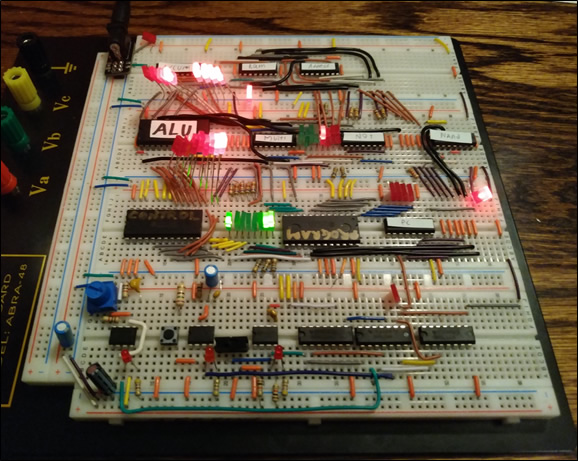
3.7
Apr 20
(2:00)
N. Gammon:
Interrupts
AVR Fuse Calculator
Complete from last class...
STL with (Brute-Force) Shifting
STL with (Scalable) Shifting
- Loops
- Decisions (compare)
- Branching
- Functions
- Libraries (includes)
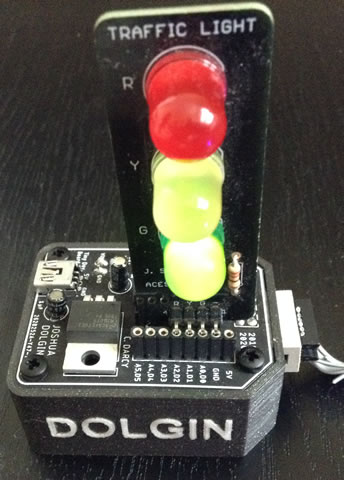
Apr 18
sbi, cbi
cp, cpi,
brne
lsl, lsr
sbrs,
sbrc
Schaffer Traffic Light

Apr 14
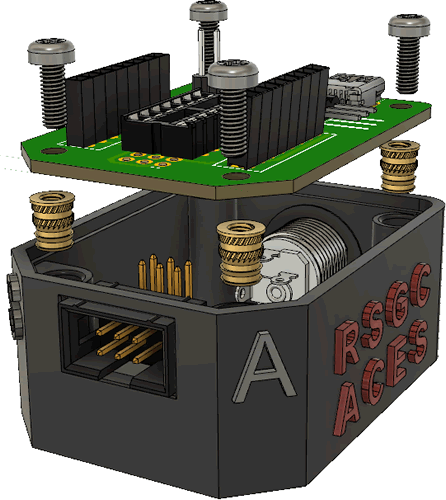
Modification & Printing
Thanks, Seb A.!!
5. DDBv7 Project Template
6. Schaffer Traffic Light
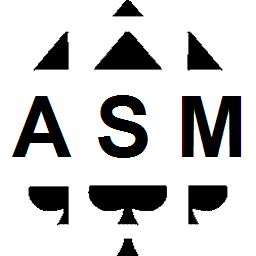

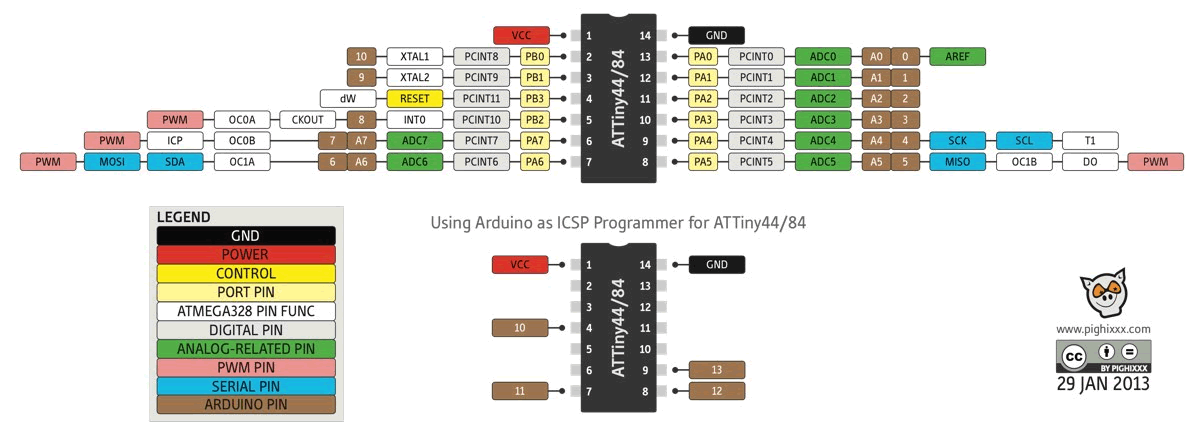
Apr 12
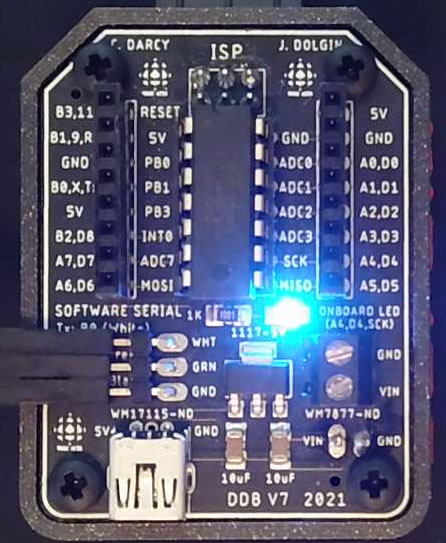
Instruction Set Summary
Now, Review the AVR
Instruction Set Summary
3. The DDBv7 Schematic
4. The OnBoard LED
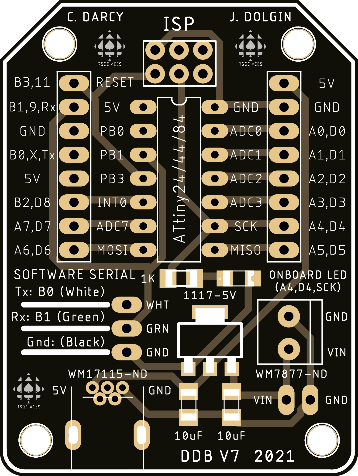
Apr 6
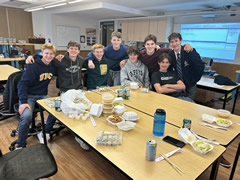

Work Period
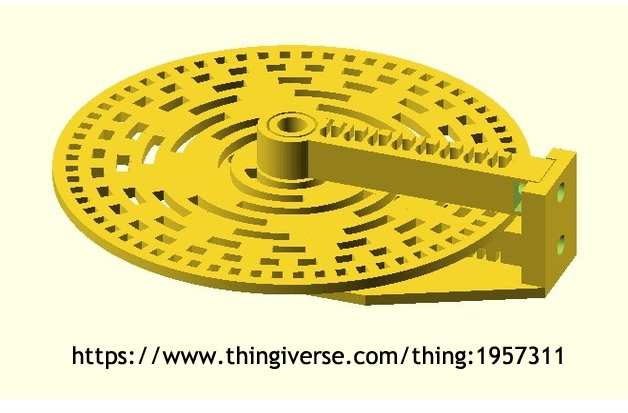
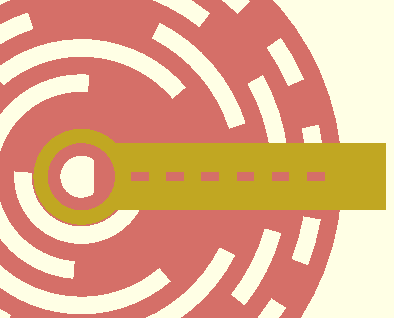
Apr 4
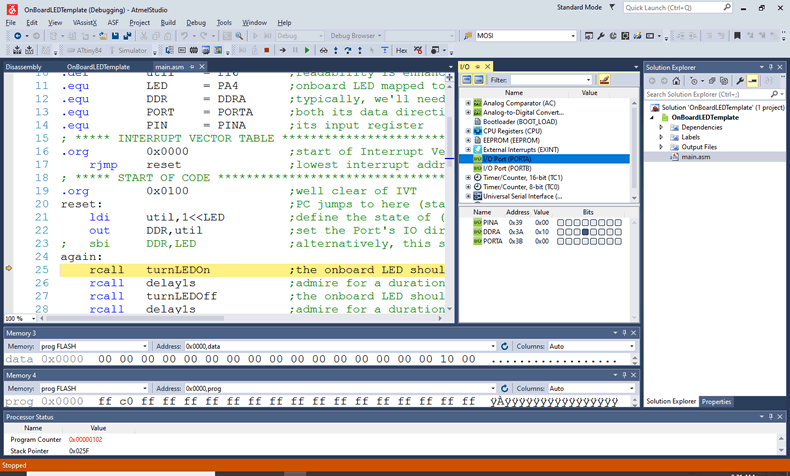

Your First (Default)
AVR Assembly Project
The Power of Debugging
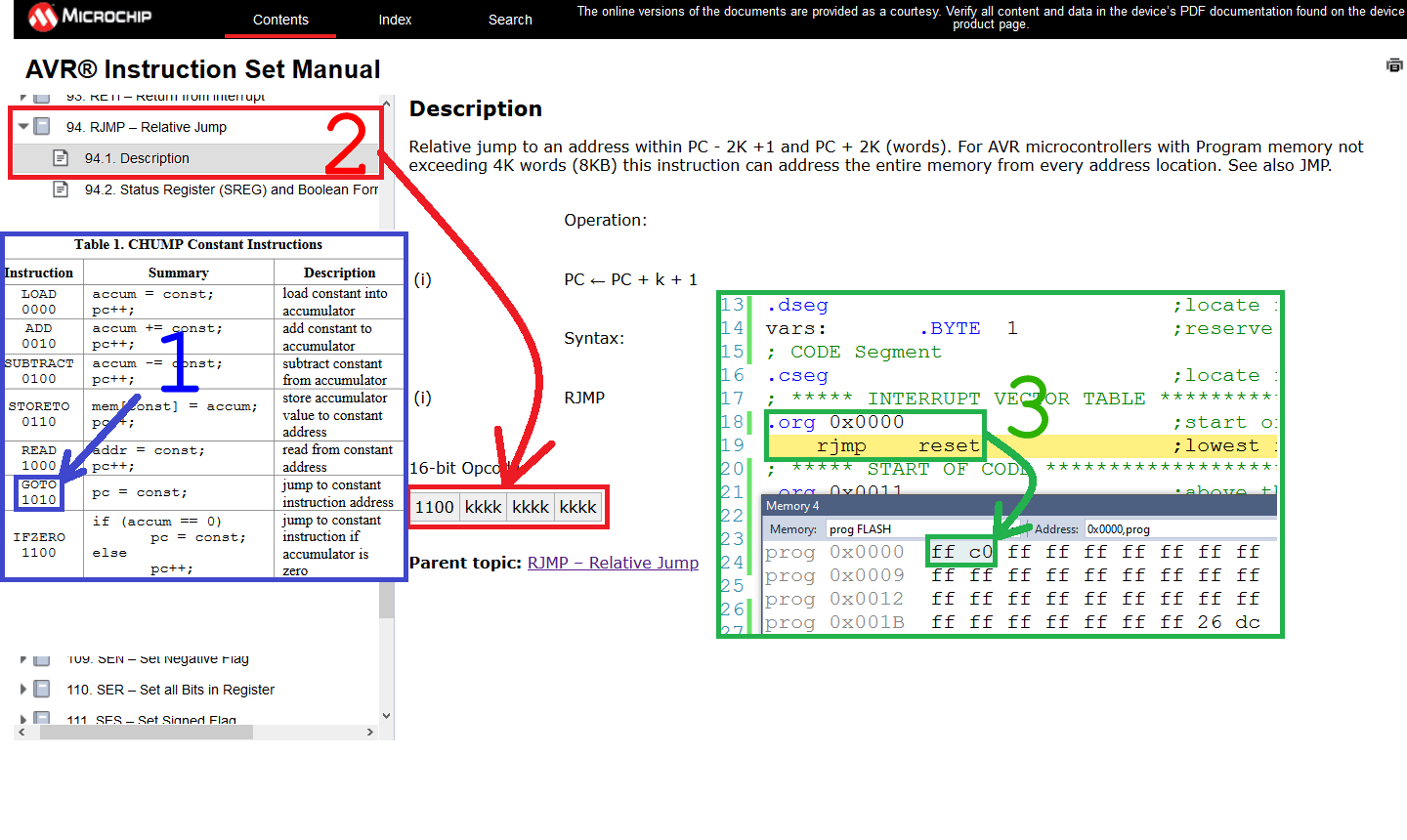
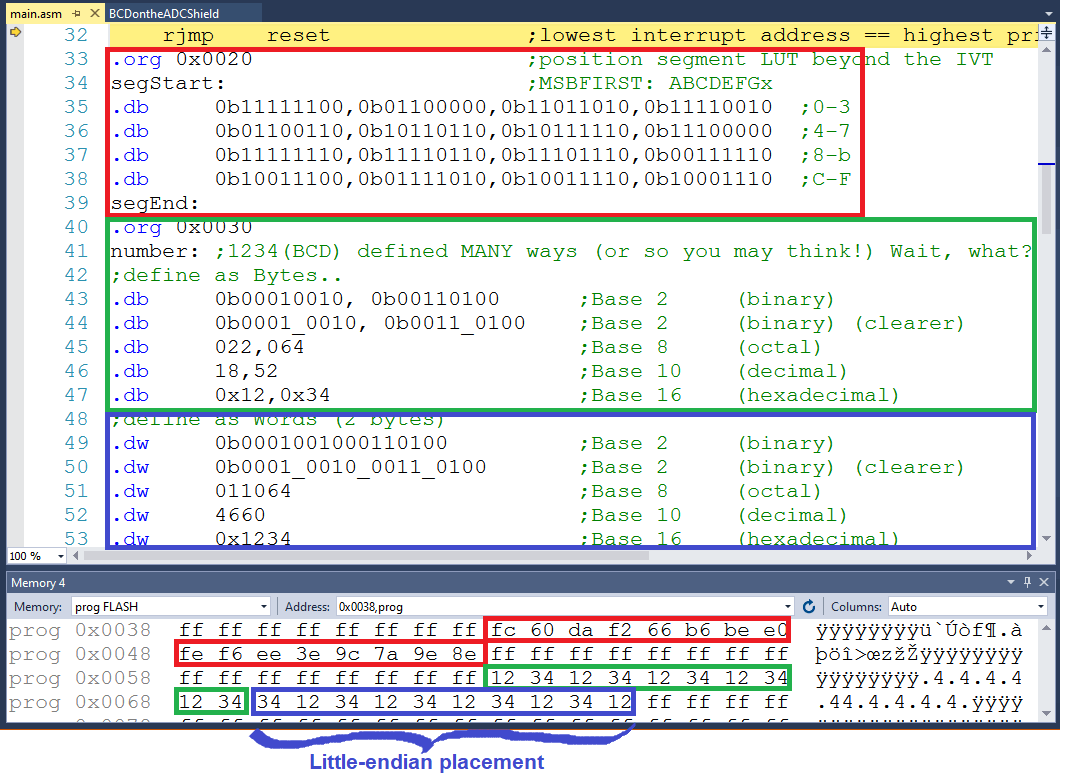
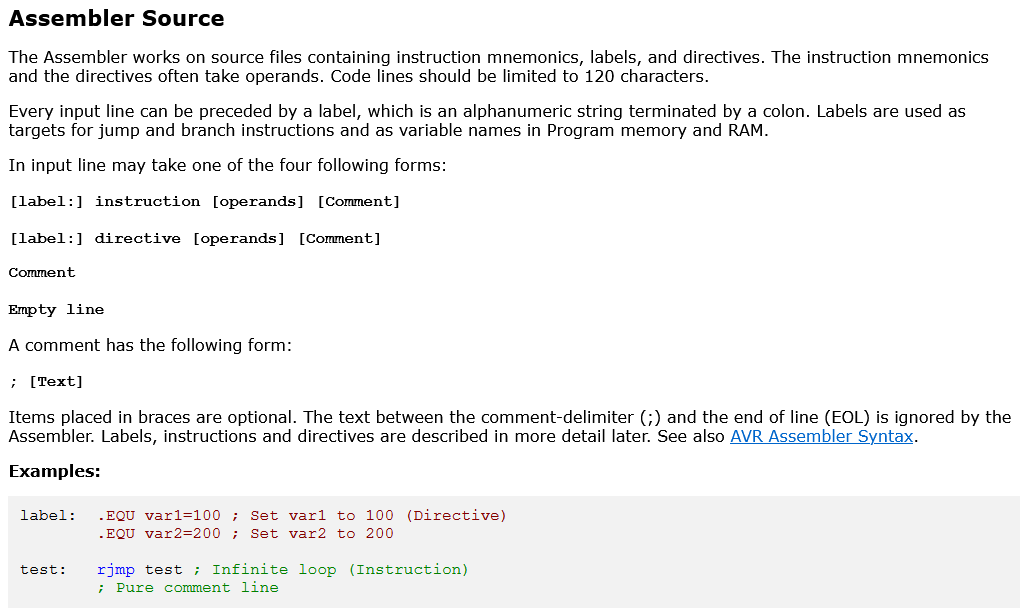

Mar 31
Sushi
Lunch
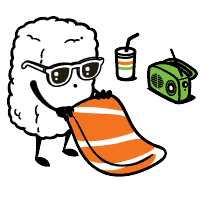
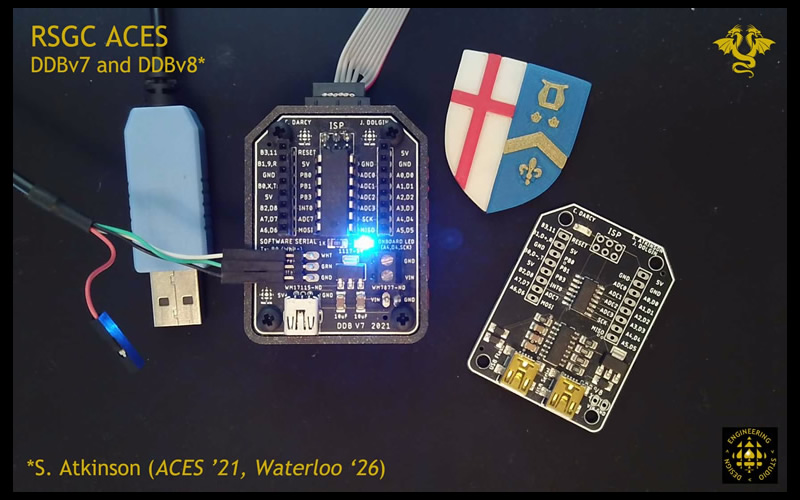
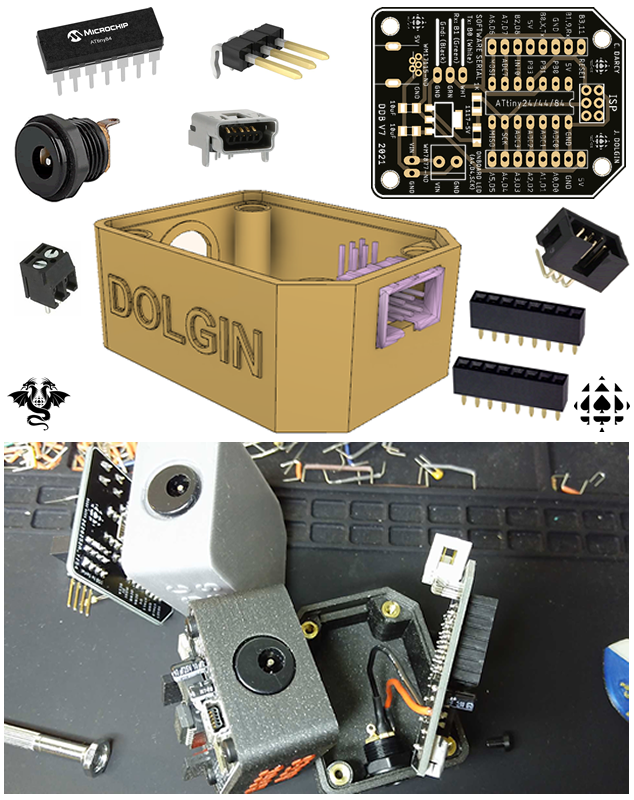
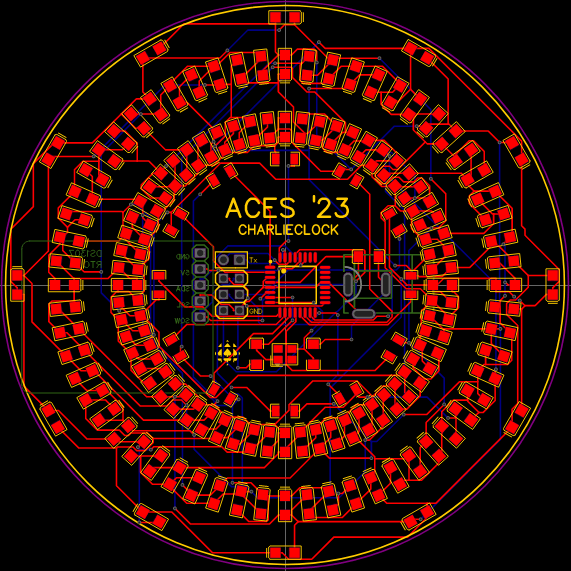
Dolgin Development Platform
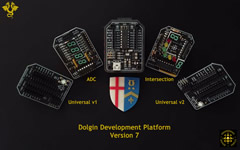
AVR-8 Assembly on the DDBv7:
0. Hardware Assembly
1. IDE Installation
2. In-System Programming
3. The Schematic
James has taken the initiative...
ACES' CHARLIECLOCK
Arriving Next Week...
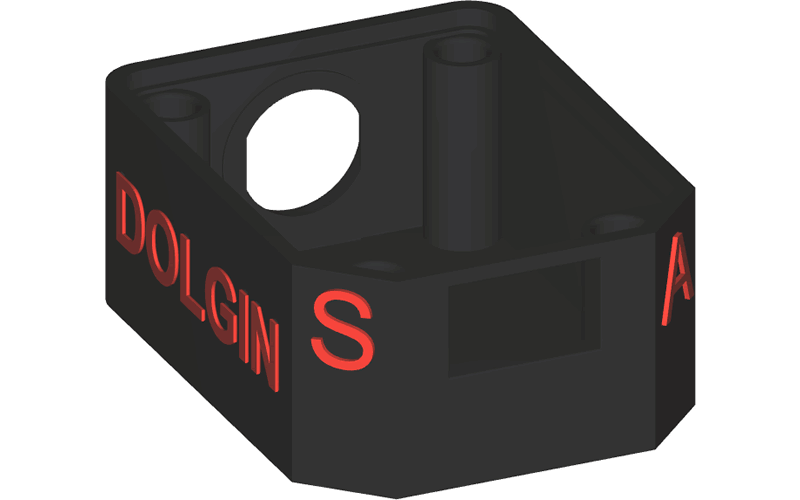

CHUMP 4-Bit
Instruction Set (14+)
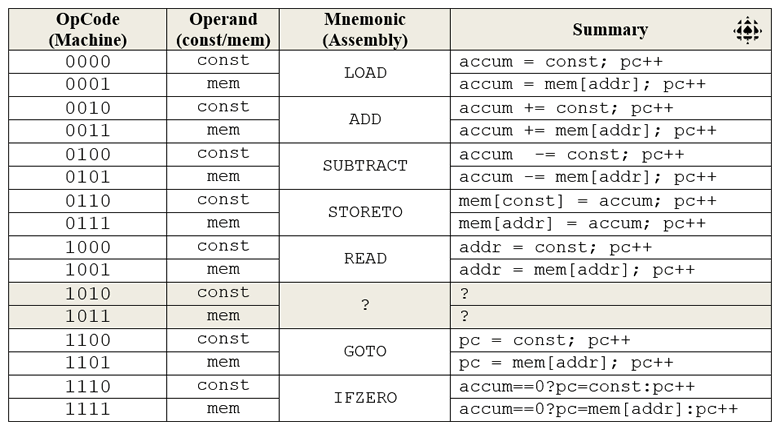
...to the Spring
AVR 8-bit
Instruction Set (100+)
Mar 29

Installing Windows and
ATMEL Studio 7
The Curse of the Engineer
JANUARY - MARCH: AVR OPTIMIZATION - Register-Level Programming (Medium ISP)
ISP DER Preparation
Mar 8

SA, AE, JR, HMS, ES, RM
SA*, TA, AE, HMS*
RM*, JR*, ES, JS
3.20.3
Mar 6

TA, JS
Register-Level Interrupts
Pin Change Interrupts
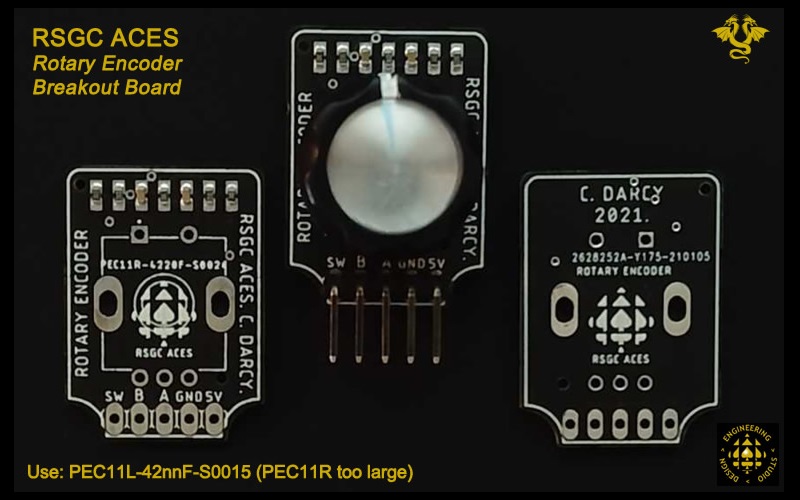
Terrific PCInt Tutorial...
ElectroN00bs
3.20.3
Mar 2
Strain/Rogan
4510 → 4511
4516→4517!
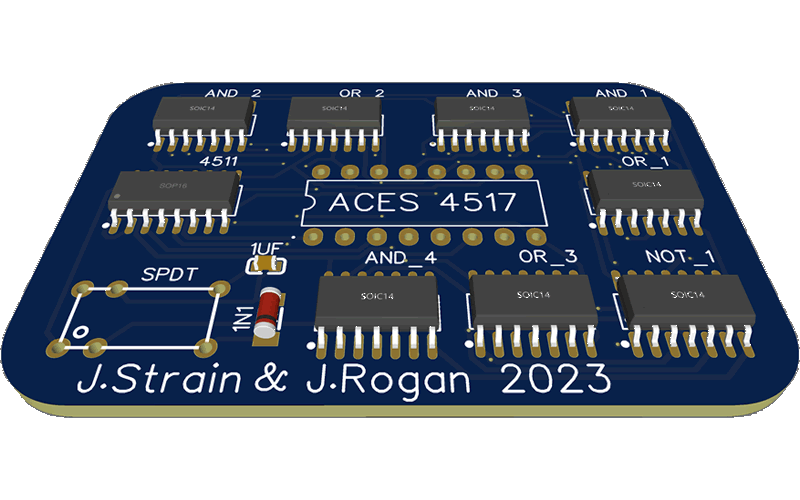
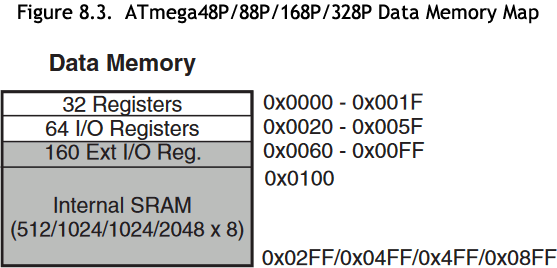
First look at...
Register-Level Interrupts:
External Interrupt 0 and 1
328P Datasheet:
External Interrupts
ATmega328P Registers
Register-Level External Interrupts for
RotaryEncoderNanoPlotter.ino
M. Elia's version of the
Muir Motor Mount
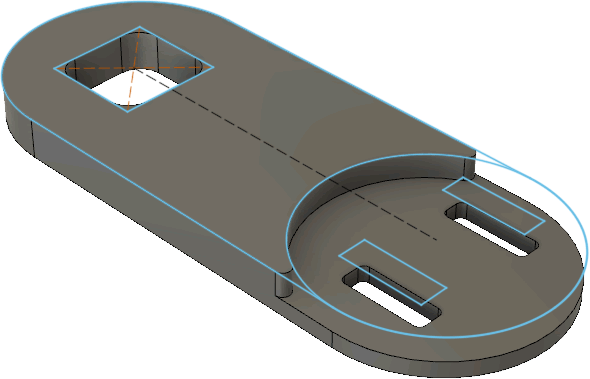
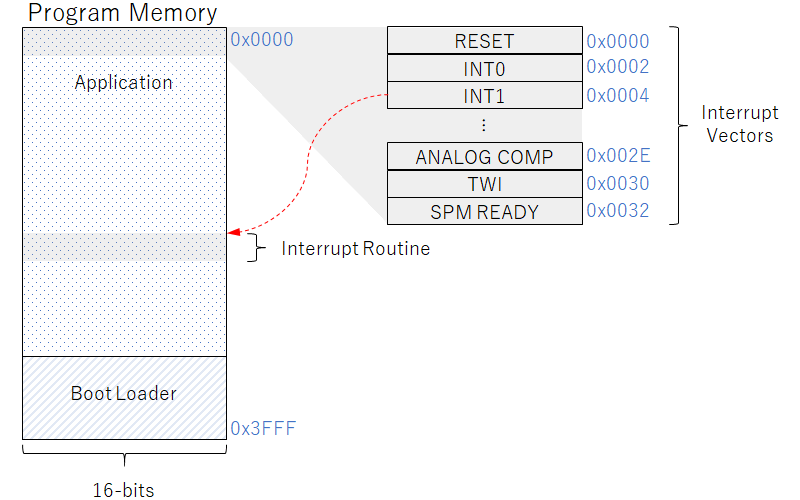
Recall from December...
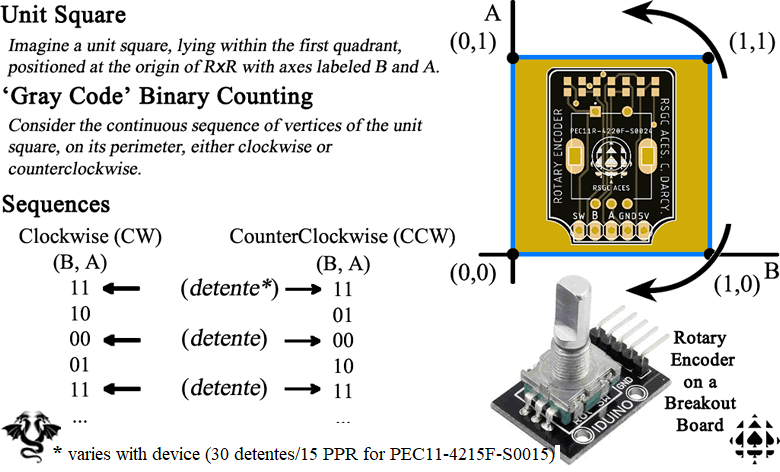
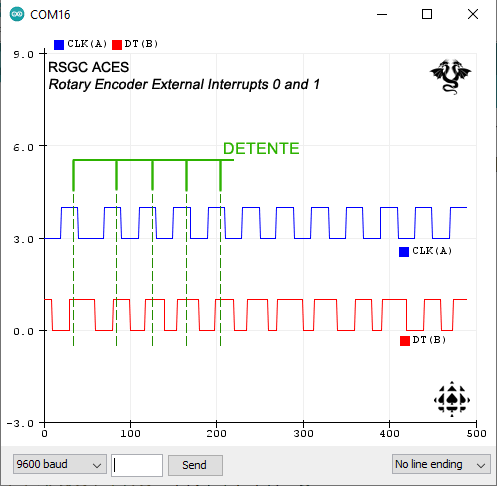
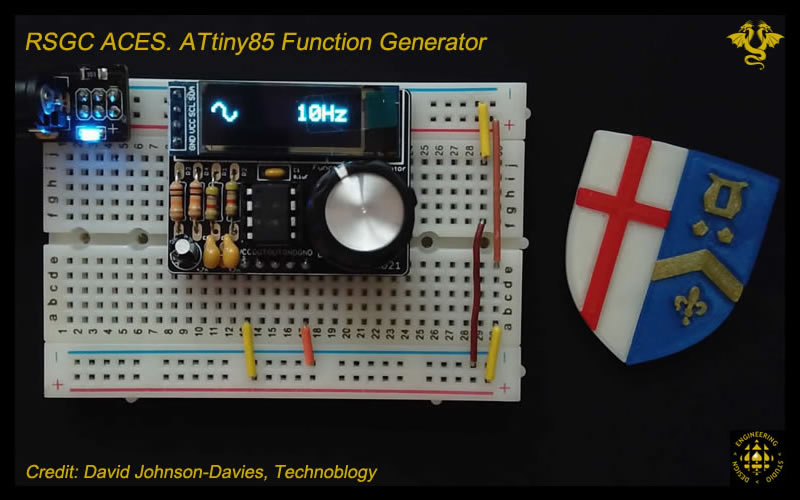
ATtiny85 Function Generator
ACES' Frame Player: Waveforms
Sine, Triangle, Sawtooth, Square,
Rectangle, Pulse, Chainsaw, Noise

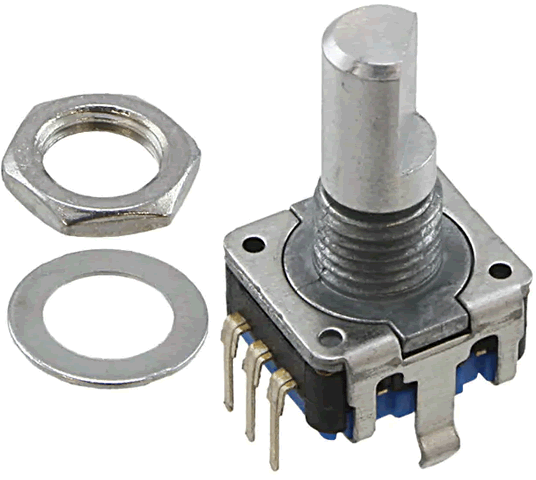
Feb 28

RLCharlieplexVUMeter
First Look at...
Register-Level Interrupts
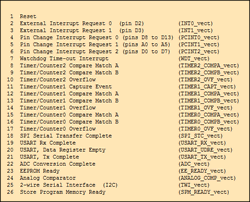

Feb 24
Control EEPROM PCB
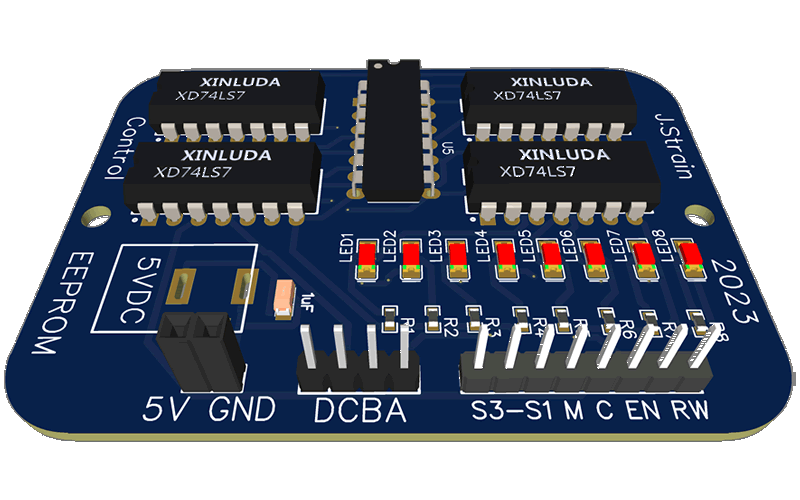
EasyEDA 3D Rendering
RLCharlieplexVUMeter
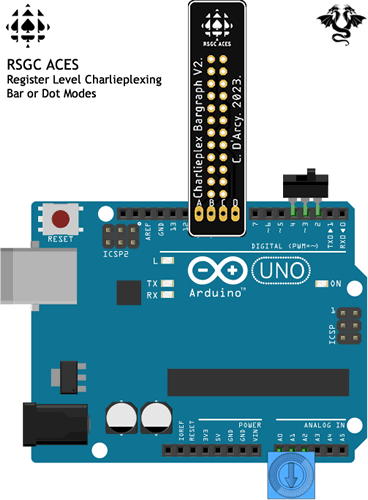
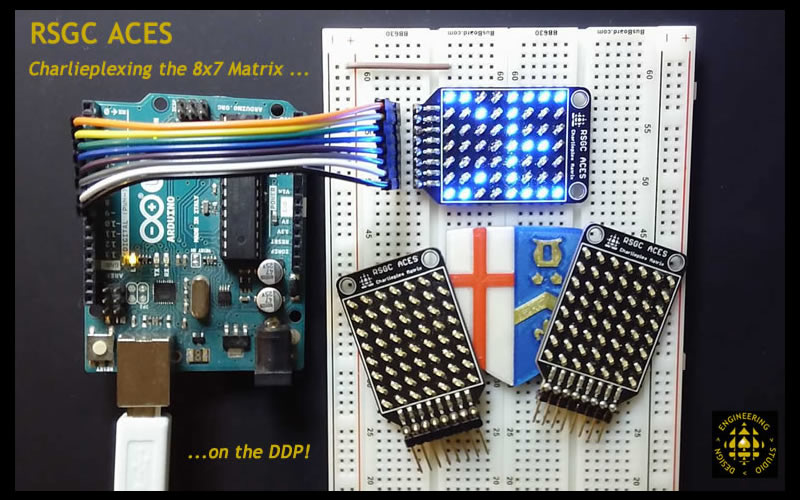
Feb 22
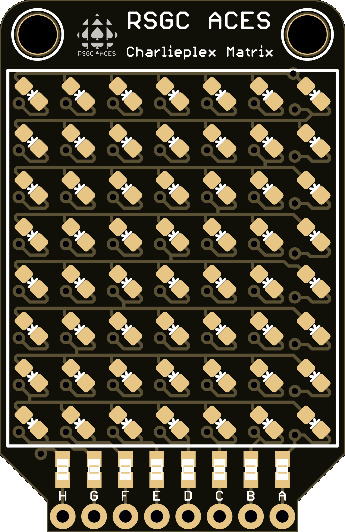
Charliestick V4
(Software, Hardware and Design)
Challenge?
←2D Charlieplexed Matrix
(modified Sparkfun device)
8 pins = 8×7 = 56 LEDs!
ATtiny84?
2D Charlieplexed Equalizer→
Individual or Class ISP?...
CharlieClock
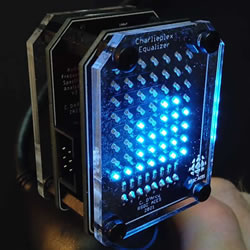
Ideal Class
( SHaD) Project?
Charlieplex Clock
(in an milled mount?)
Placement in EAGLE
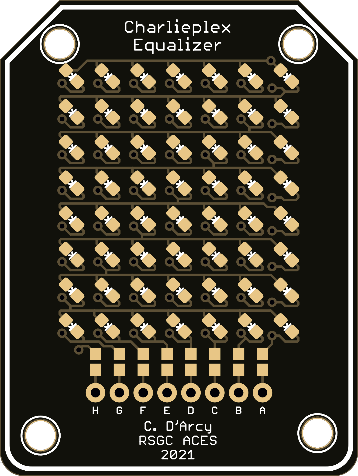
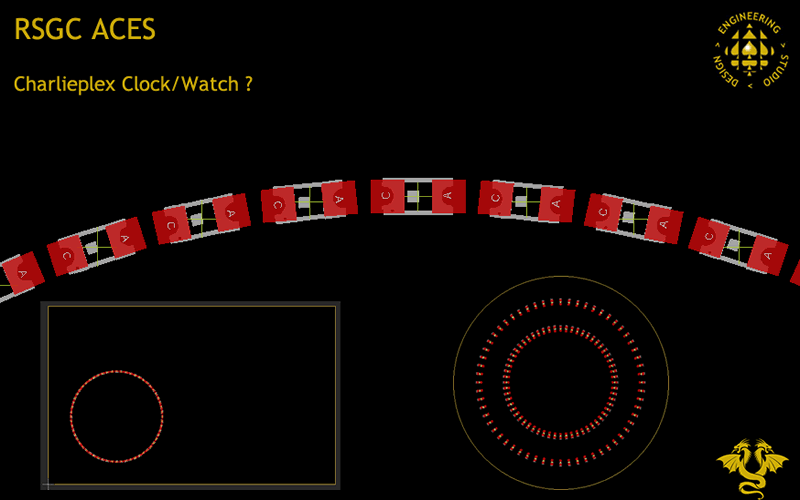
Feb 16
NCCBarsandDots.docx
Just because he's Ben
Voltage Multiplier
Doing More with Less...
1D Charlieplexing
4 pins = 4×3 = 12 LEDs!
Digital IO Pins in the
ACES' Frame Player: Charlieplexing

Recall & Review
from Grade 11...
External Interrupt, ADC

Feb 14
ACES' Xmas Tree
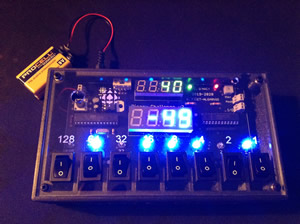
Arduino C's Sketch 'Host': main.cpp
The (input) principle behind the
ACES' Binary Challenge
Reading a Port
(Optional)
Project 3.5 Binary Challenge

Feb 10

C = Preprocessor Directives
Project 3.4 Work Period

Register Level Shiftout
**SA & HMS**, TA & ES,
*AE & RM*, JR & JS
Feb 8
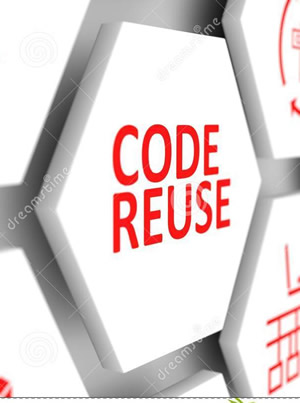
Passing an IO Port as a Parameter
Further Reading...C- Pointers
Separation and Reuse of Code
Create a Personal Library
C = Preprocessor Directives
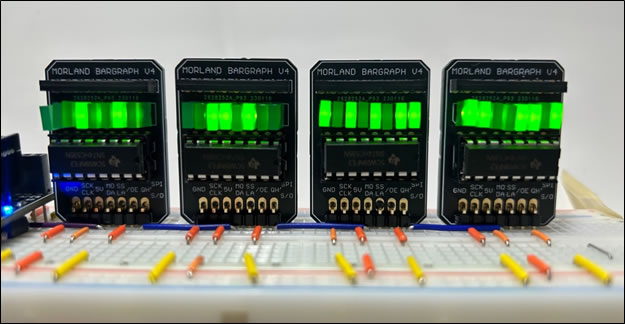
Feb 6
Period
Rotation
to P1
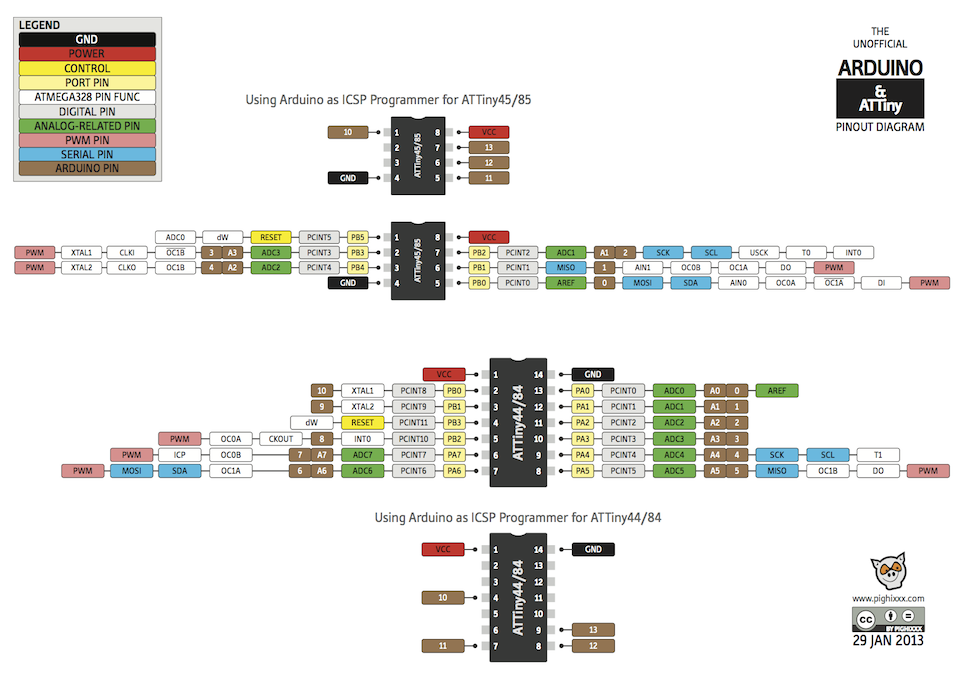
homework (wait, what?)
outshift()
Register Level Shiftout
Overloaded 16- and 32-bit
Register-Level shiftout


Register Reference
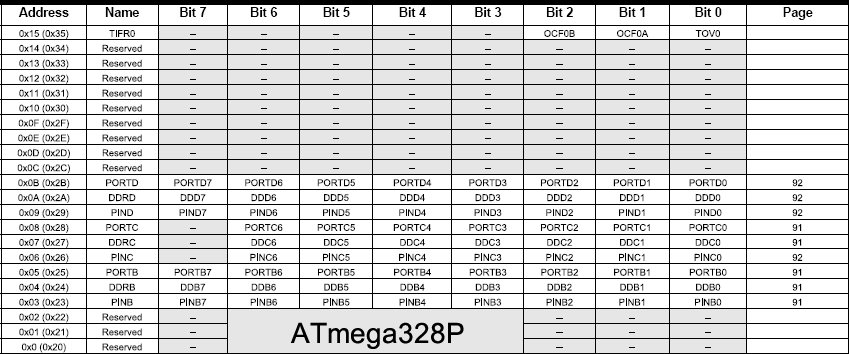
Jan 31
Design Team
(Rogan & Appleyard)
12-LED Bargraph
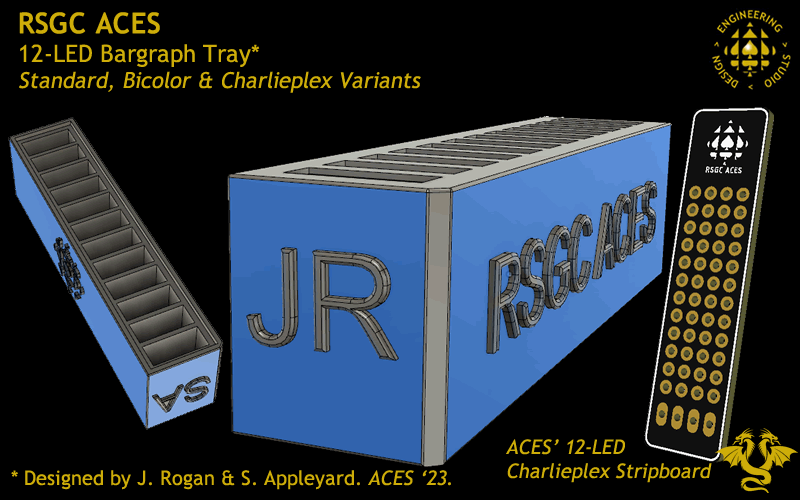
homework (wait, what?)
outshift()
ACES Primary(?) Theme:
Doing More with Less...
1D Charlieplexing
4 pins = 4×3 = 12 LEDs!
ATtiny85?
Charliestick V4

Jan 27
Optical Options for
Register-Level
Reconsideration...
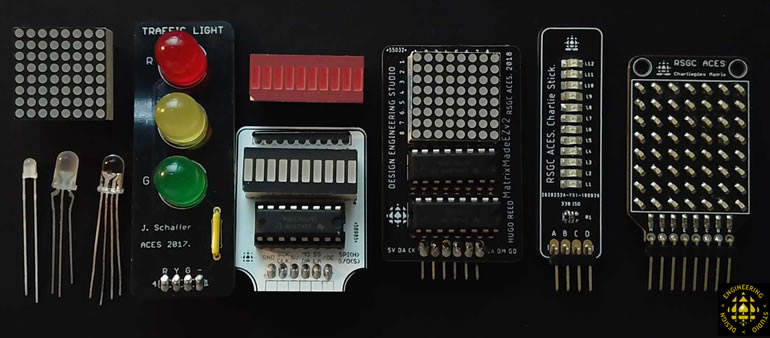
Register-Level Digital I/O
...on the ATtiny85:
BicolorBlink
shiftout()
Soldering of your
ACES' Charlieplex Bargraph
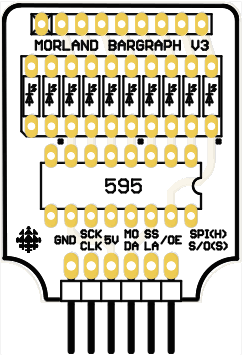
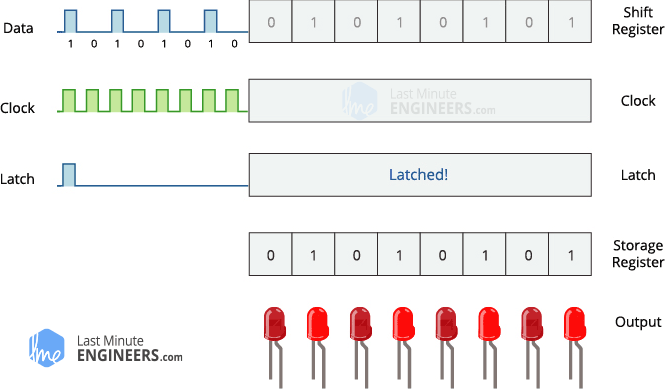

Jan 25
NCCBarsandDots.docx
Register Level
Introduces
structs & pointers
Bars or Dots Increasing
Check out:
Hmmm....Most Efficient Blink?
See ATmega328P Datasheet
First Look at
GPIO tasks
for your ATtiny85
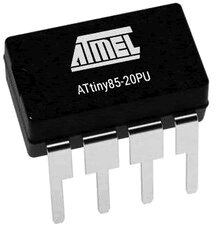

ATtinyCore
BicolorBlink
on your ATtiny85
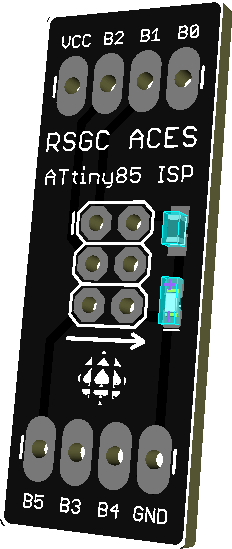
Jan 23
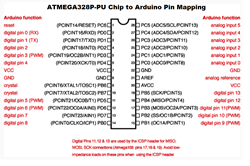
Register-Level Digital I/O
GPIO Tasks
Coding Companion

Jan 19
Register Reference

AVR Optimization (pp. 5-7)
Register-Level Digital I/O
GPIO Tasks
Coding Companion

Jan 17

Function Overloading
AVR Optimization (pp. 5-7)
Register-Level Digital I/O
BitsandBytes
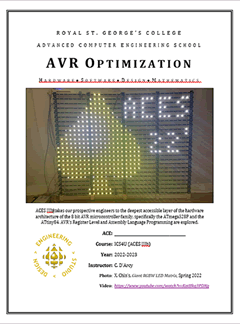
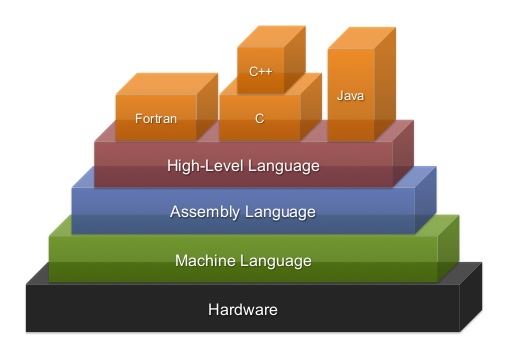
Jan 13

Register-Level Digital I/O
BitsandBytes.ino
Summaries
mega328P, tiny84

Jan 11
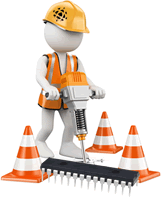
influence your ISP choices?

Write a register-level Arduino program to blink an LED
AVR Optimization (pp. 5-7)
Register-Level Digital I/O
Engineering The
Foundation


ACES' SMT Parts
Flat Flex Cable (FFC)
Dec 20

RM, TA, AE, ES
SA, TA, AE, HMS
RM, JR, ES, JS
3.10.4
Dec 16

SA, HMS, JR, JS
3.10.4
Dec 14
Condensed
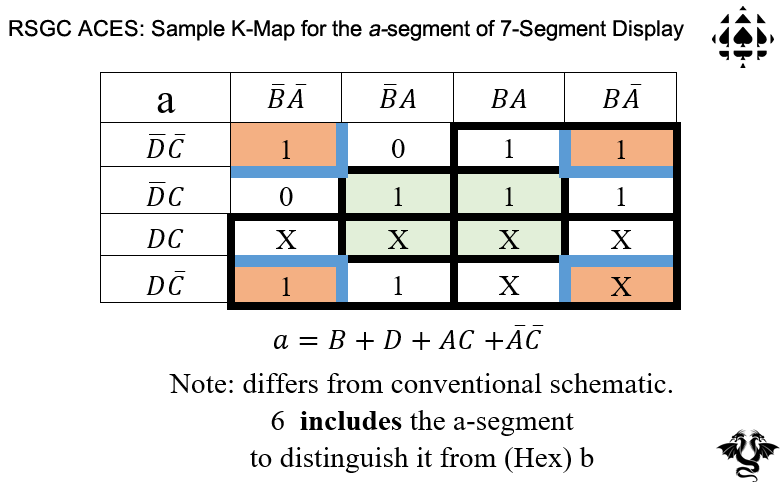
3. Gate-Level Minimization
(for the FULL (4517) BCD Decoder)
Dec 12
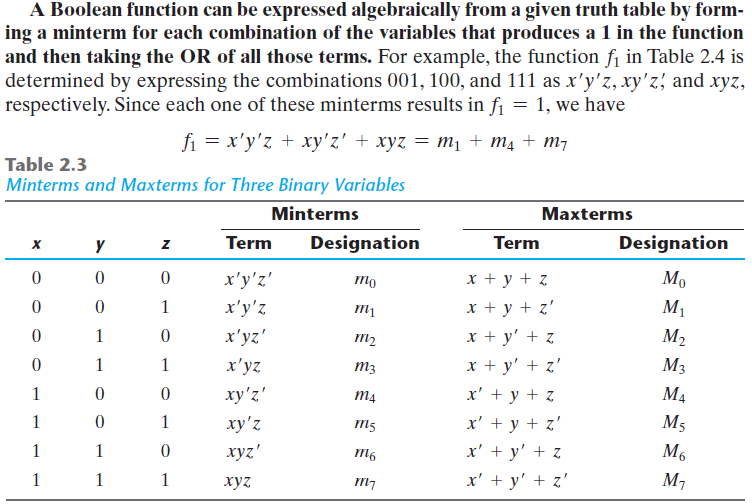
2.6 Canonical and Standard Forms
Minterms and Maxterms
Dec 8
The 4517

One can only dream :)
Logic Gates
Axioms, Theorems, and Postulates
of Boolean Algebra
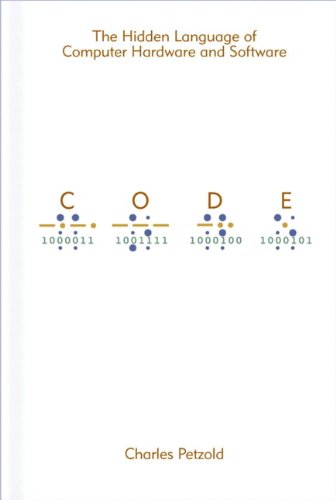
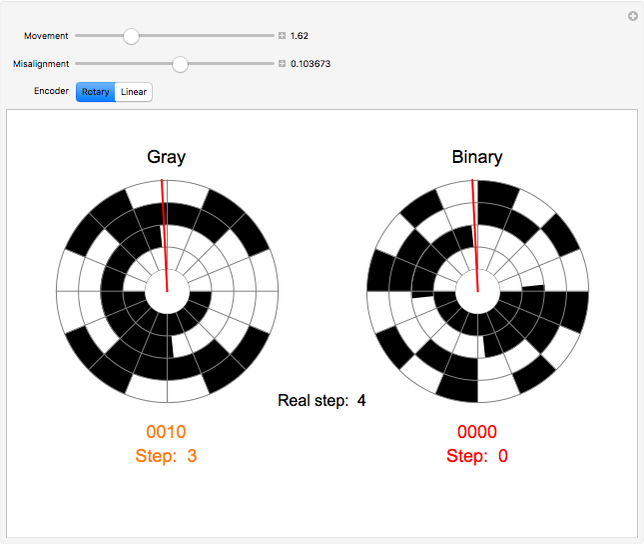
Dec 6

§ 1.6 Signed Binary Numbers
§ 1.7 Binary Codes (BCD & Gray Codes)
§ 1.9 Definition of Binary Logic
Hwk: 1.2, 1.7, 1.14 a) c), 1.15 a) c)
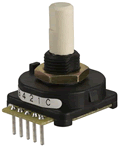
16-PPR Gray Code
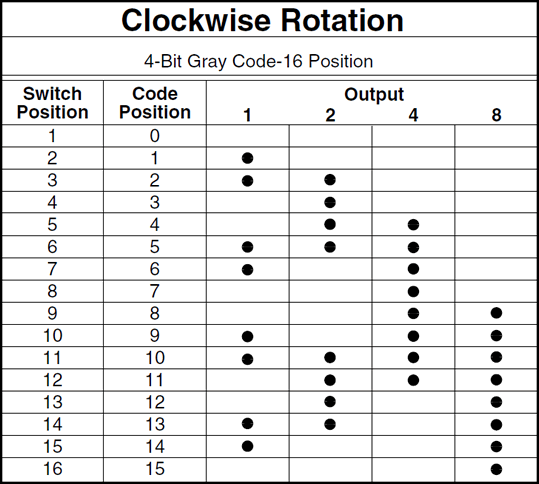
Dec 2
§ 1.5 Complements
§ 1.6 Signed Binary Numbers
§ 1.7 Binary Codes (BCD & Gray Codes)
Hwk: 1.2, 1.7, 1.14 a) c), 1.15 a) c)
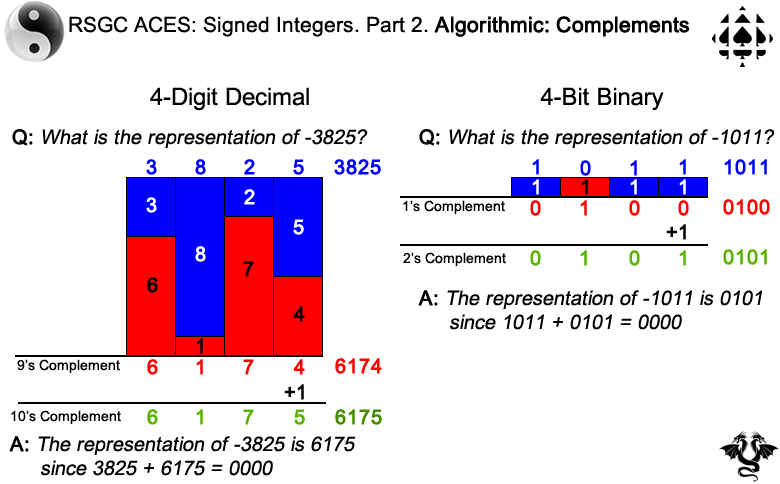
Nov 30
Digital Design
ACES' Alumni Visit (12:45-1:45):
Seb Atkinson
(ACES '21, Waterloo '26)
Goldman & Atkinson's
Encoder
Gray Code
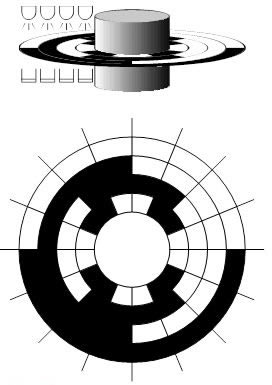
SA, TA, AE, HMS
RM, JR*, ES, JS
First look at:
Rotary Encoders:

Pololu Tutorial:
Optical Encoding
Nov 28
Imagine exclusive Hardware Control over
the CHUMP Control Codes as a
Combinational Circuit
Boolean Functions &
Boolean Algebra
BCD to 7-Segment
Display Driver
Hackaday CHUMP
Verilog Tutorial

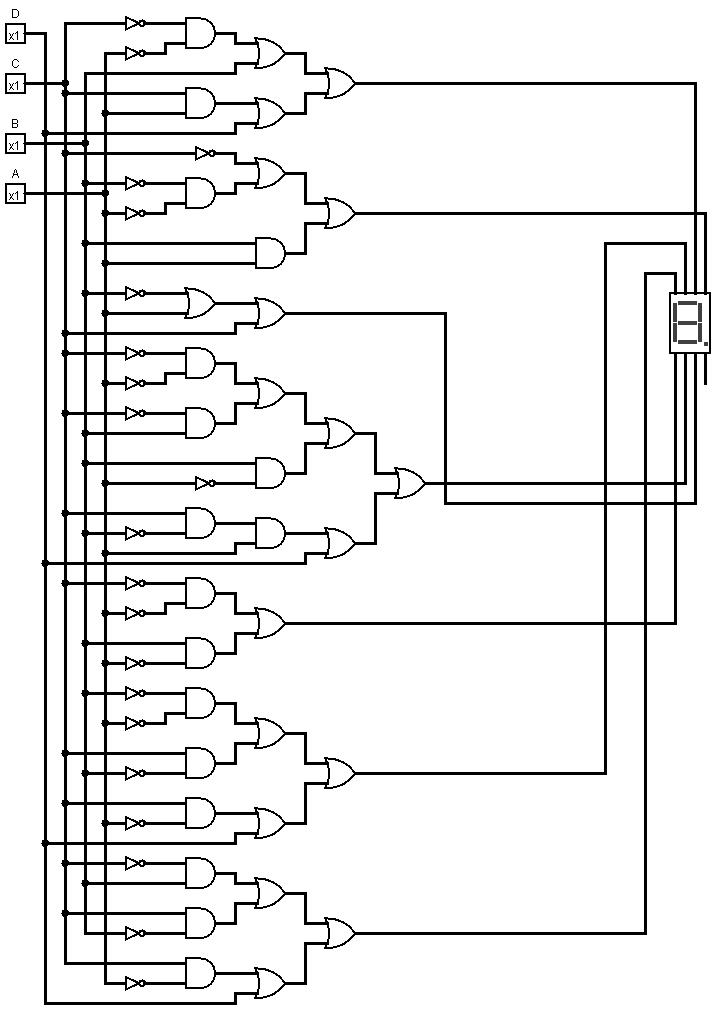
OCTOBER-NOV: CHUMP II - EEPROM Burner, Program EEPROM, RAM, MUX, NAND, ALU, & Control EEPROM
Nov 24
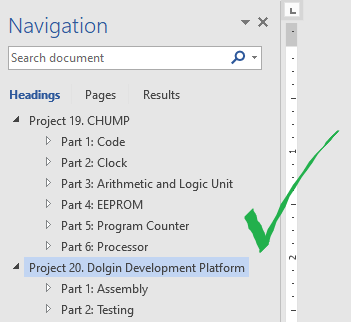
The Best CHUMP
DER Nav Pane Ever?
CHUMP Build Session
DER Finishing Touches
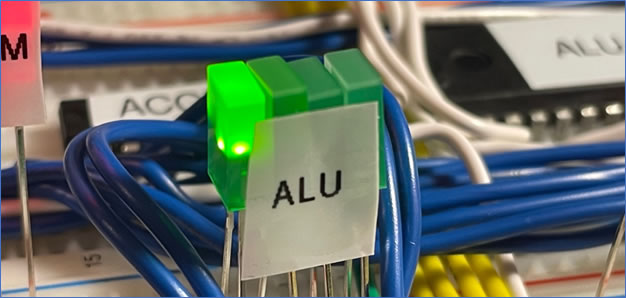
Nov 22
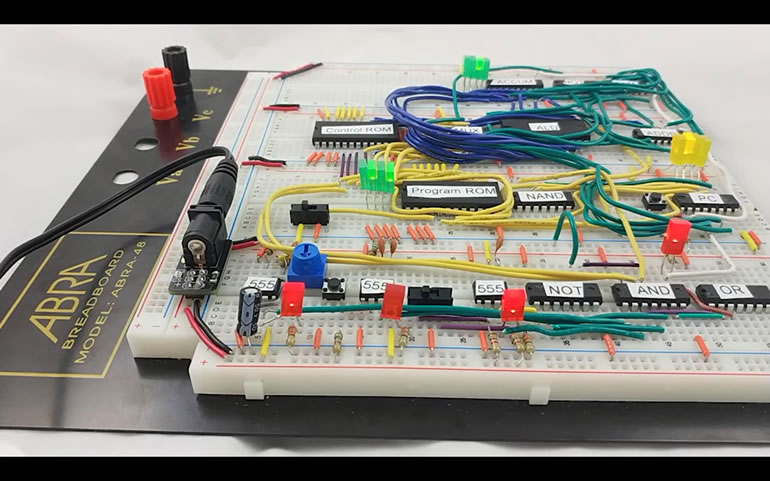
Jamie Linsdell
(ACES '16, Queen's Eng. '20)
Queen's University Medallist
(Highest Engineering Graduate Average)
CHUMP Build Session
Chumpanese
Final CHUMP Video
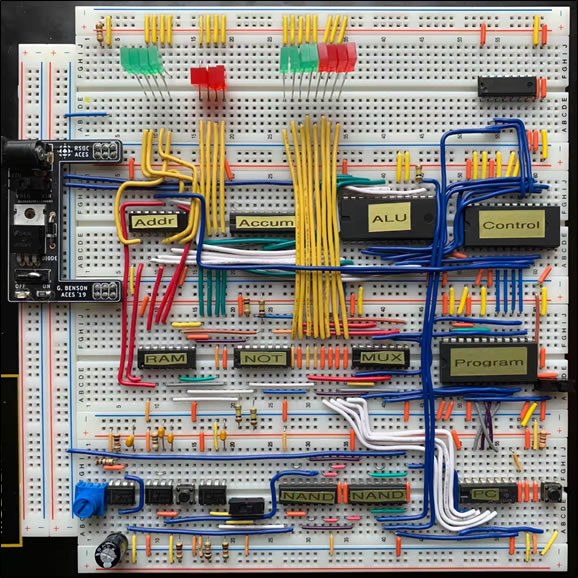
Nov 17
Asynch.
P/T Ints.
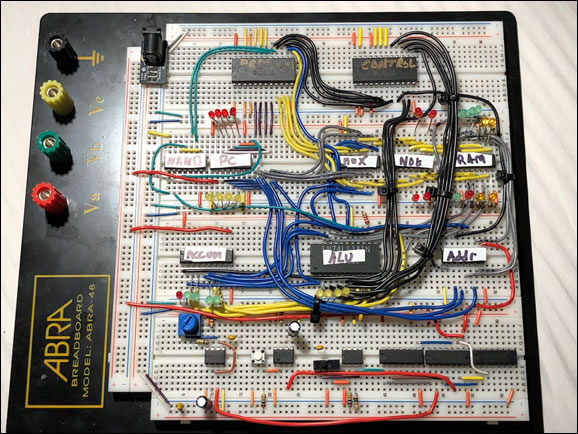
Control EEPROM is flashed
RAM, MUX, ALU, NAND
Final CHUMP Video

Nov 15
Control EEPROM is flashed
RAM, MUX, ALU, NAND
Nov 9

VISIT TO ARGON PROTOTYPES
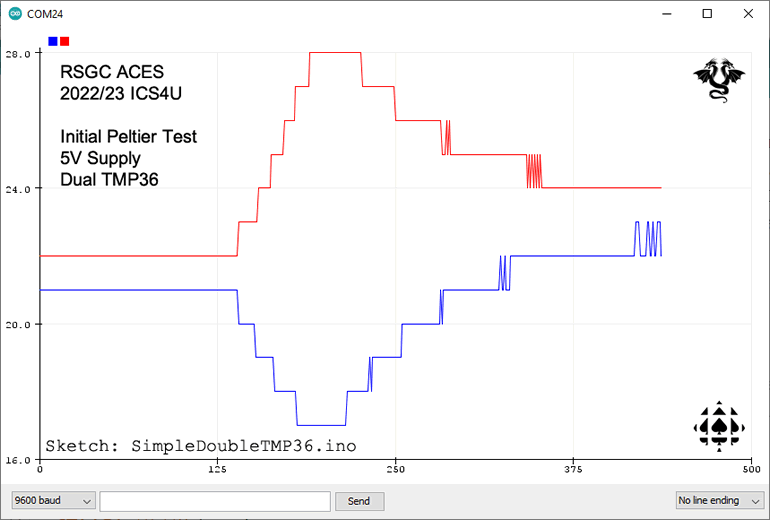

Nov 7
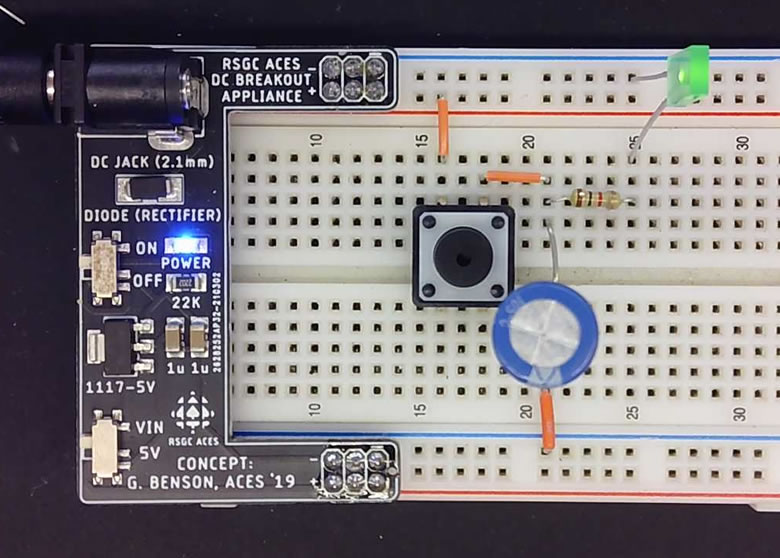
Graydon Benson
(GB Machine!)
(ACES '19, Calgary Eng&Comm. '24)
CHUMP Control EEPROM (cont'd)
recommendation
is the reason we call
our Project Archives,
(D)ER.docx
and Logic Unit (ALU)
AE*
Nov 3
Argon Prototypes:
Nov 9
Xander Chin
(ACES '22, Western Eng. '26)
CHUMP Buses (pp.36-39):
Data, Control
CHUMP Control EEPROM
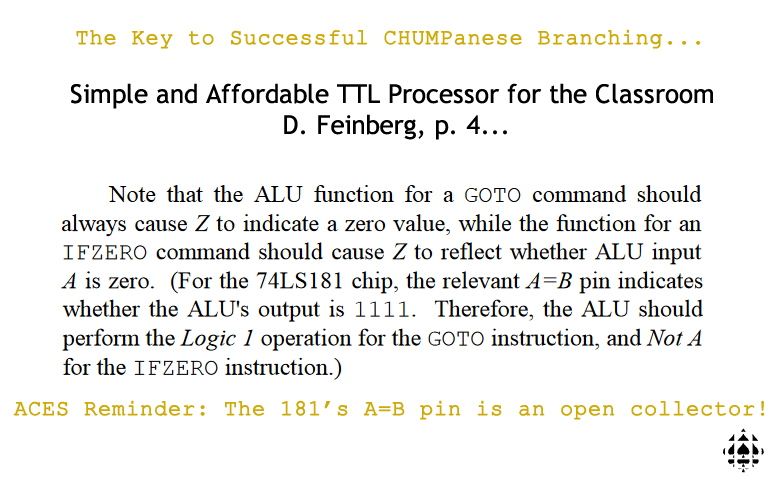

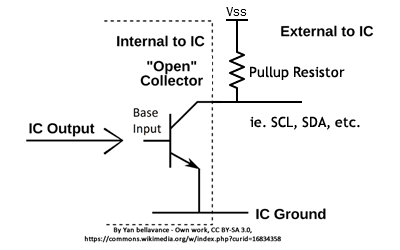
Nov 1
Group Build Session
Open Collector!
Breadboard Explorer
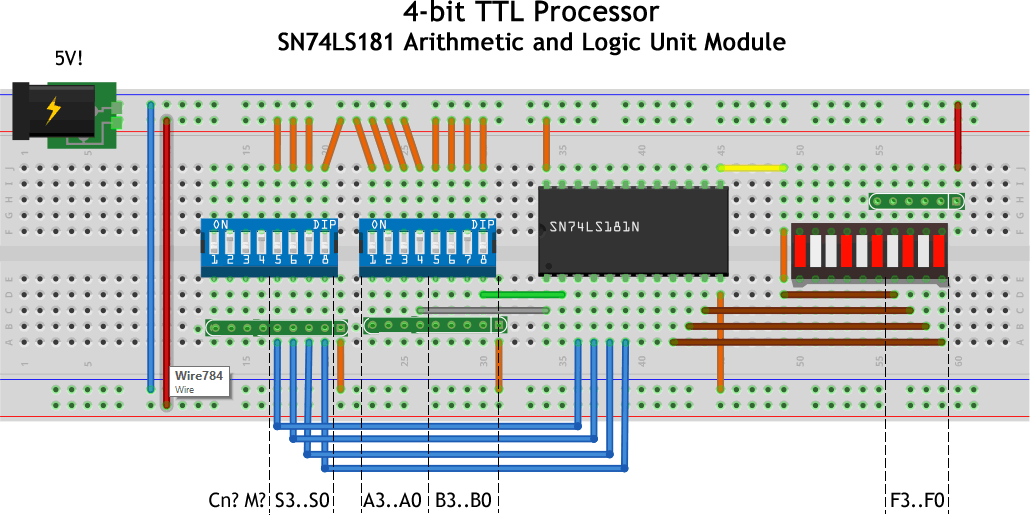


Oct 28
TA Sushi Lunch

Inside the vintage
74LS181 ALU chip:
How it works and
why it's so strange
Mar: Circa 2015...
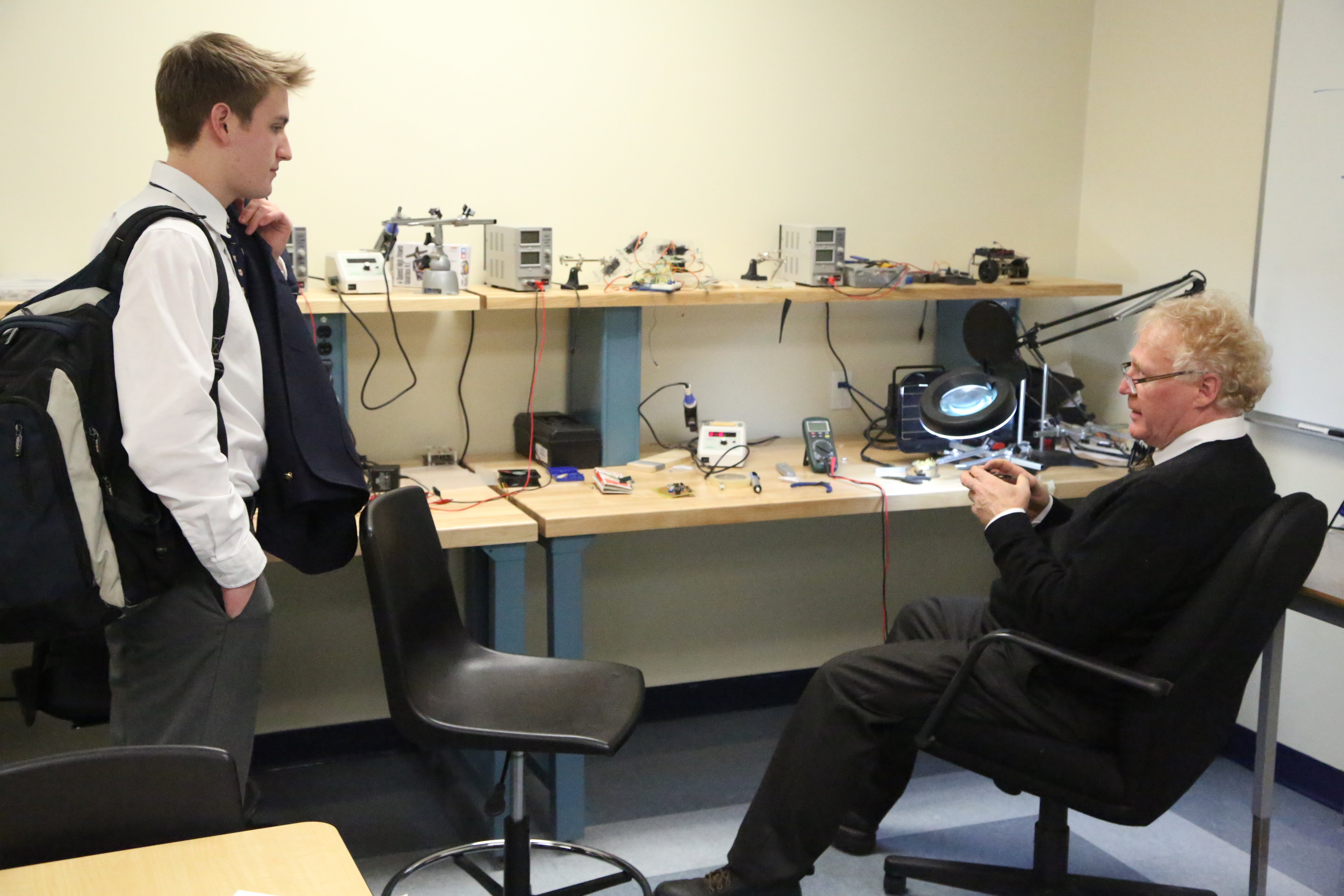
SA (Mux), TA (NAND), JR (ALU)
Overview of the 74LS181
Arithmetic and Logic Unit
After-school CNC Meeting with
Mariano & Emilio Elia
of Argon Prototypes
Hackster.io: Photon Flip-Dot Clock

...Circa 1980
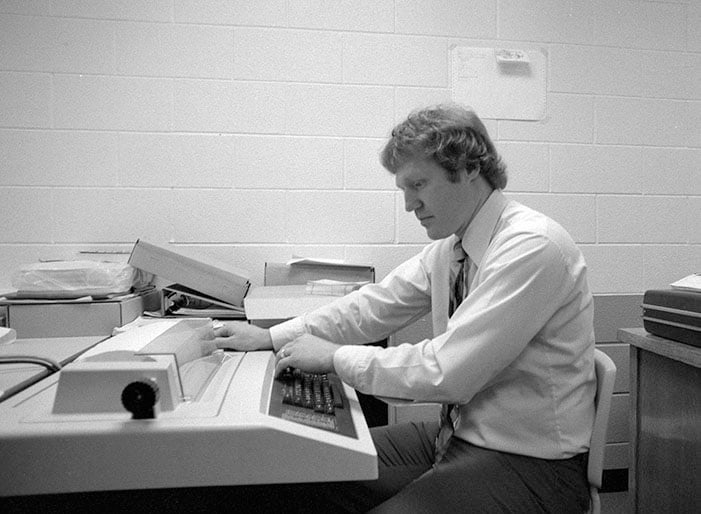
Arithmetic Logic Unit
Oct 26
Custom ALU
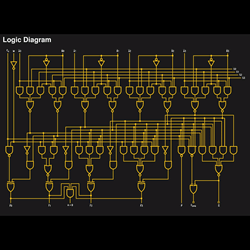
AE, RM, ES
LR-C: Falstad Logic
Watch the Insanely-Inspiring...
...ACES '21...
← ALU Lockdown Legacies →
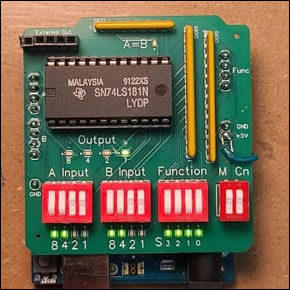
Program EEPROM
SA, TA, AE*, HMS*
RM, JR*, ES,
JS* (Must-see intro)
Oct 24
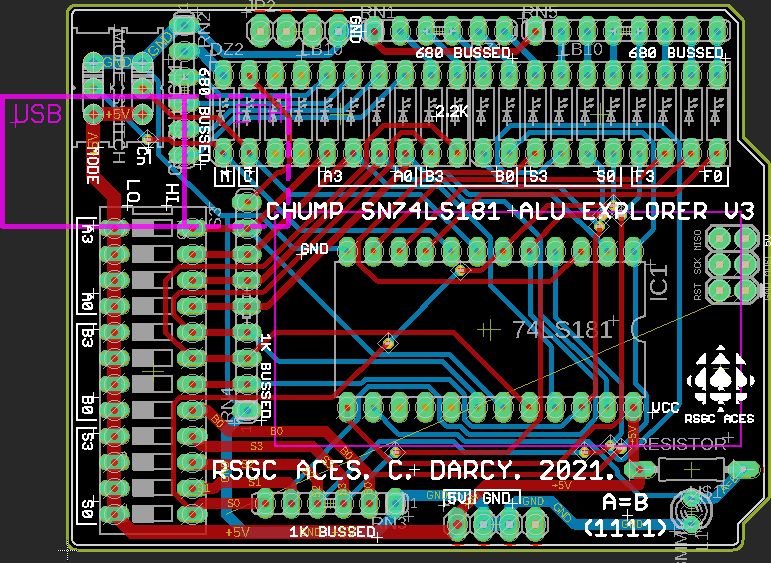
Address, Data, Control
CHUMP Control EEPROM
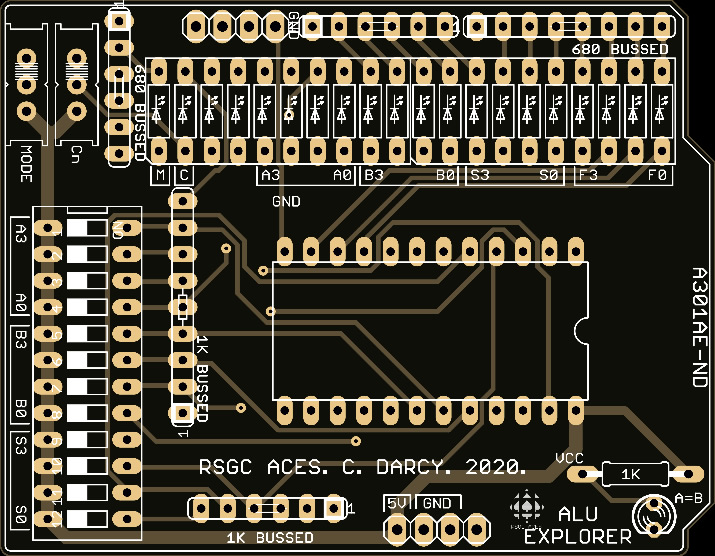
Oct 20
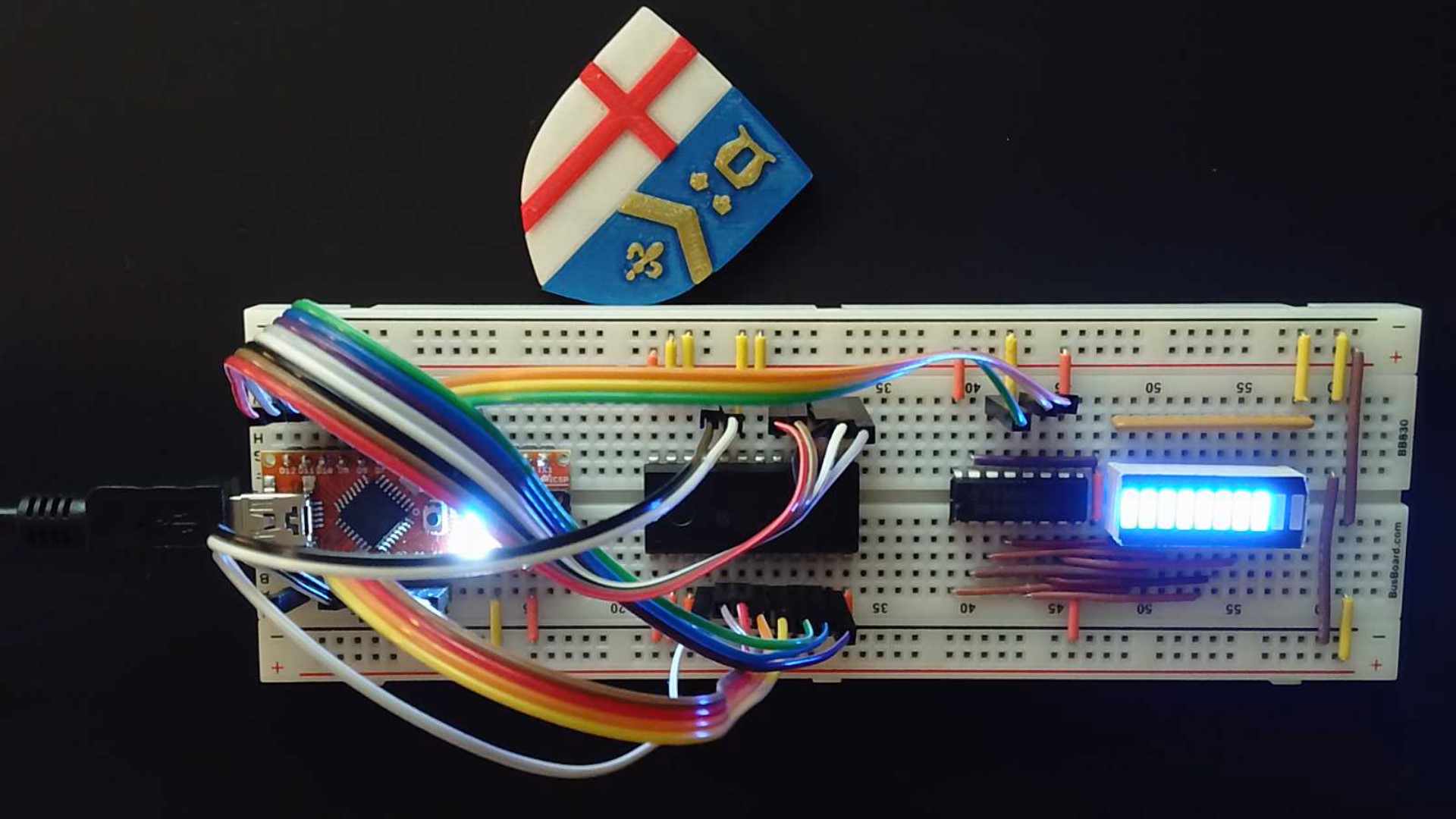
Program EEPROM Work Period

Oct 18

ACES' EEPROM
Display Enhancement
Wire your EEPROMs
(with LED or LB-602MK2
for this weekend's DER
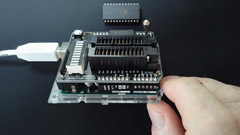

Shield Schematic
Swapping Variables
CHUMPanese Code
Program and Control
EEPROMs (AT28C16)
Feinberg Example:
82 10 21 62 A0

Oct 14
CNC
Meeting/Visit
Proposed Date:
Friday October 28
(3-4 PM) ?
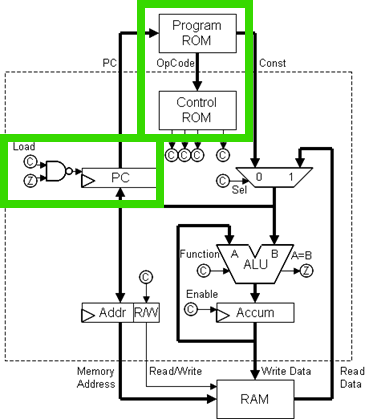
Puneet Bagga
(ACES '17, U of T Eng '22)
CHUMP
EEPROM IC Presentation: HMS
Overview of the
AT28C16 EEPROM and Paging
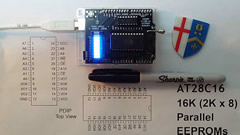
Flashing of
Feinberg's Sample Code

3.2.2
Oct 12


Ethan Peterson
(ACES '18, Queen's Eng '23)
Rocker Switches
for coming classes. B. Eater's:
Combinational Logic
AND
Dividend: A terrific review
of your ICS2O-E and ICS3U-E skills!
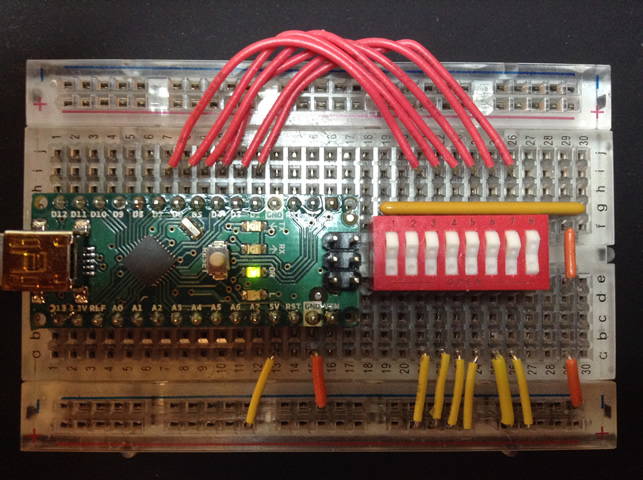
(pull down example)
DC Circuits Workbook...
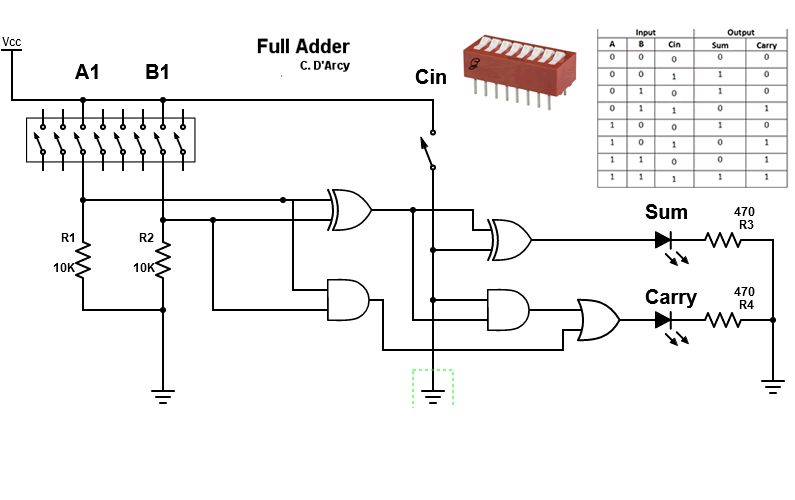
3.2.2
Oct 7

***Cycle 3/Day 1 Period Rotation***
1. ICS2O-1, 2.ICS4U, 3. ICS3U, 4. ICS2O-2
Clock, Counter, Code
SA, TA, AE*, HMS**
RM*, JR**, ES, JS*
Oct 5
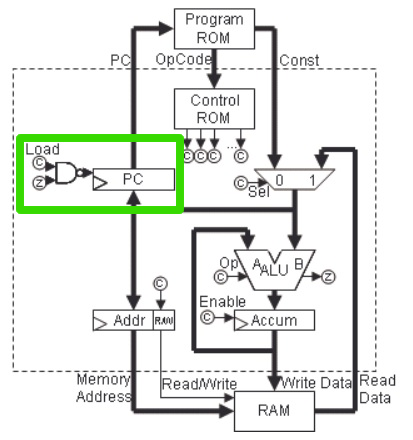
(Full) Clock Build Session, Clock (NE555)
CHUMP: Code (Part 2)
3. if..then..else (p. 10)
4. While loop (p. 11)
5. Arrays (p. 11)
Oct 3

+ Program Counter (74LS161)
with /CLR feature
+ External NAND (74LS00) (LOAD)
Review of the Chumpanese...
Instruction Summary (p. 7)
CHUMP: Code (Part 1)
1. Feinberg Sample Code (p. 12)
2. Swapping Variables (p. 10)
(CodePen)
Feinberg Resources:
Chumpanese Tutorial
CHUMP Lab
Chumpanese: Multiply
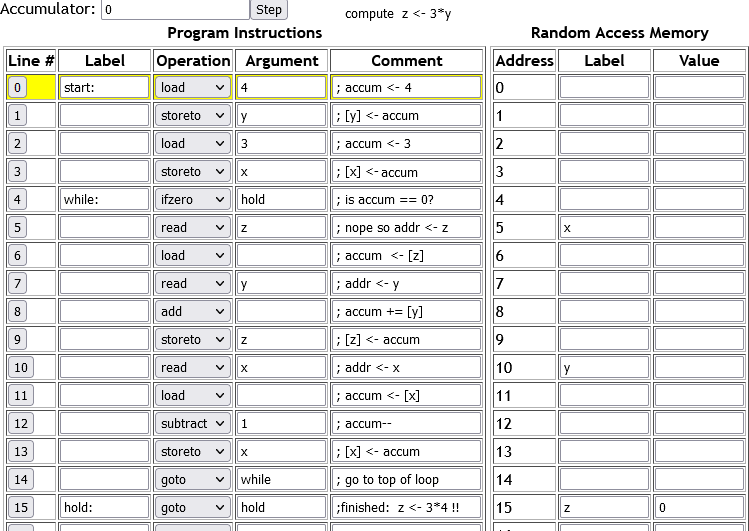
Sep 29


Part 3. Bistable
Part 4. Clock Logic
CHUMP: Clock
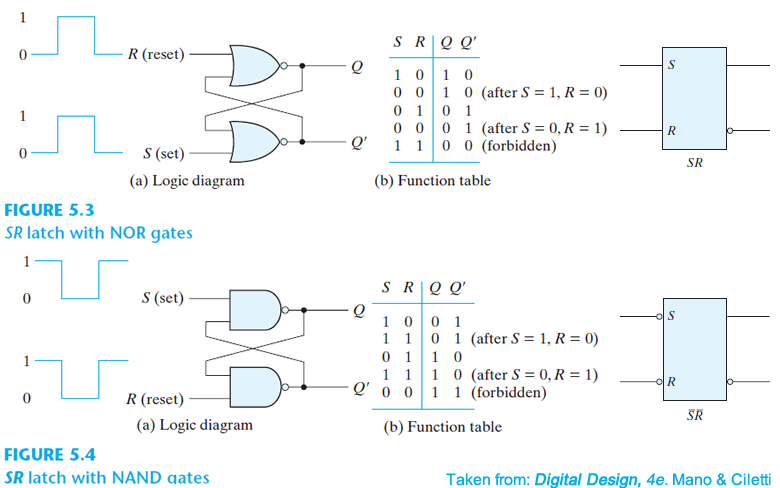
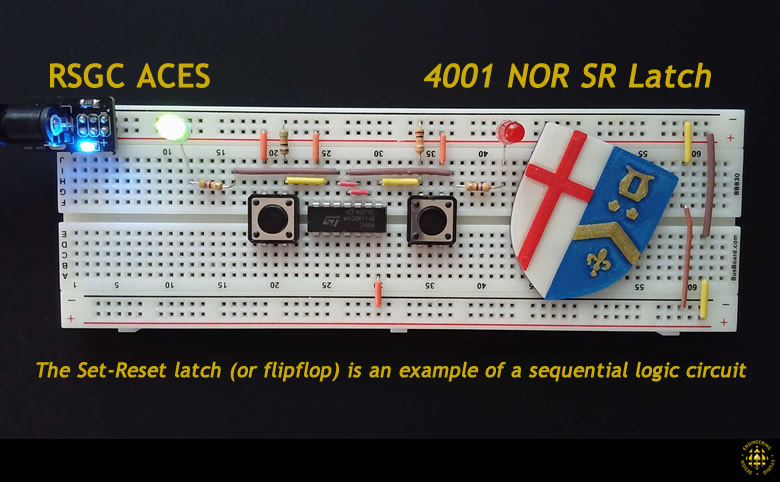

IC Socket with
Decoupling Capacitor

Sep 27
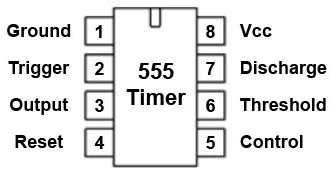
Part 1: Astable
Part 2. Monostable
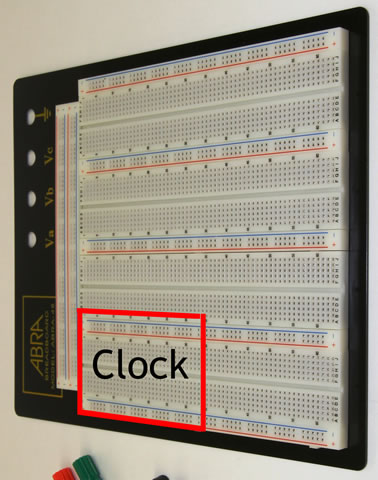

Sep 22
Curr.
Night
Alan Turing's
Famous Paper:
(paving the way for the modern computer)
"On Computable Numbers
With an Application
to the
Entscheidungsproblem"
Cheap Homebrew Understandable
Minimal Processor
The CHUMPANESE Language, Reflections
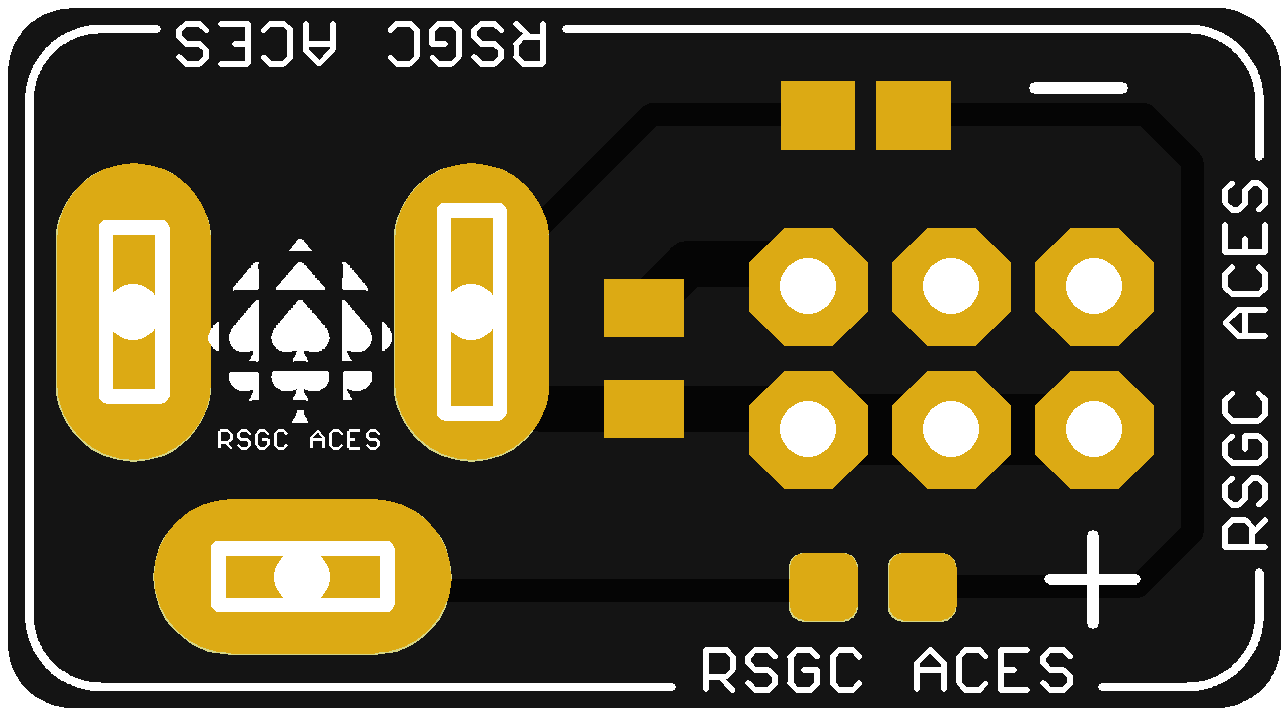
IC Assignments
CHUMP VM
(CodePen)
BusBoard BB100R Power Rail
Sep 20
CHUMP Paper:
A Simple and Affordable TTL Processor
for the Classroom
- pp. 4-5
CHUMP
Cheap Homebrew Understandable
Minimal Processor
Control Logic
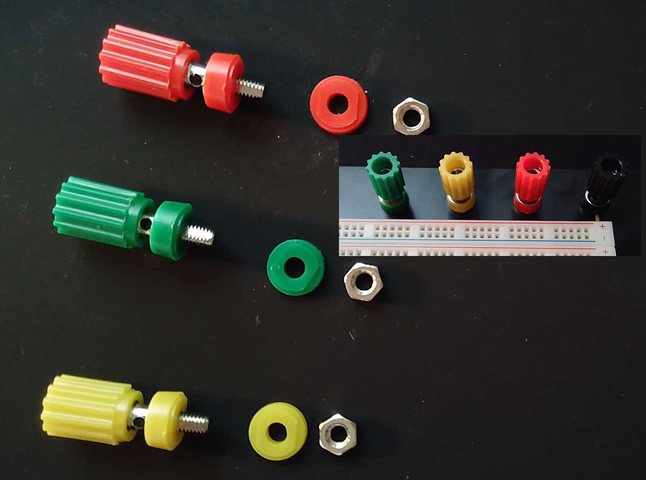
Sep 16

Cheap Homebrew Understandable
Minimal Processor
Instruction Set

Reorder Details
SA, TA, AE, HMS*
RM, JR*, ES, JS
Sep 14

ATtiny84 SMT Trainer
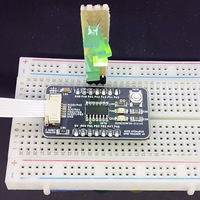
CHUMP (1-2)
Cheap Homebrew Understandable
Minimal Processor
Common SMT Parts
Induction: L. Cassano

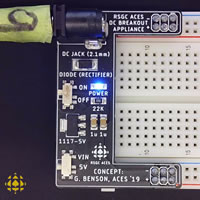
Sep 12
Short ISP Proposal
Due: Sat. Sep. 17

dime-a-dozen...

Short ISP Options,
Discussion, and Expectations
DES SMT Soldering (3 Options):
1. Hand (0.3mm solder wire)
2. ![]() AOYUE 968 Hot Air Rework Station
AOYUE 968 Hot Air Rework Station
3. DIY Reflow Oven
(Stencils &Examples)
The Driver of Success?
SMT: Focus on Thin...

MorlandBargraphV4
in action
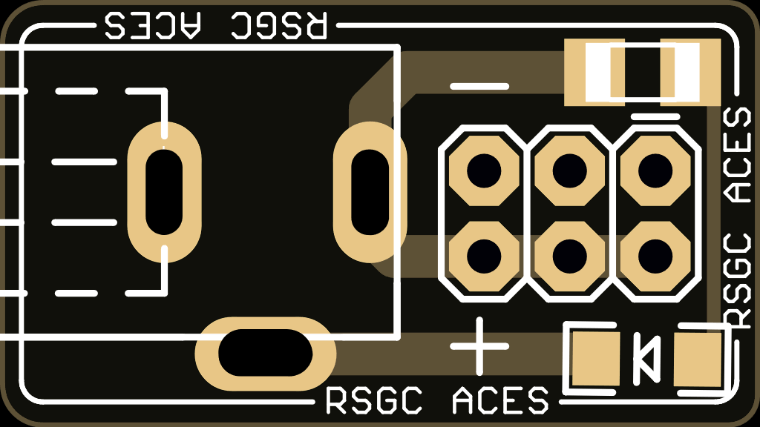
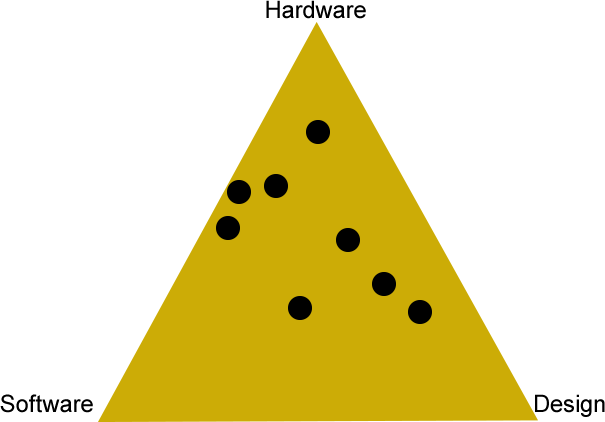
Sep 8
Day Calendar
Short ISP Proposal
Due: Sat. Sep. 17
Student Outline
Mr. D's Timetable
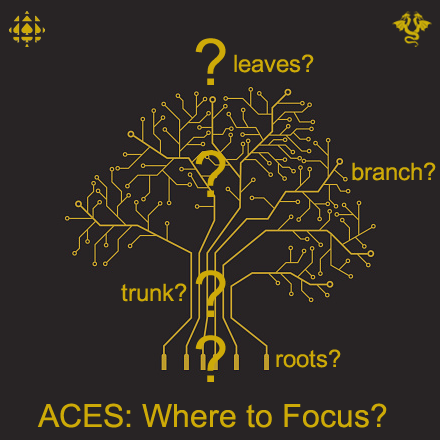
Our ACES' Program: Contradictions
Distribution of
2022 Canadian International Rover Challenge
Wrap-Up Video
ACES Hall of Fame:
D. Raymond '19
E. McAuliffe '18, E. Peterson '18
Mariano Elia '15: Hackster.io,
Argon Prototypes
Jumper Wire
Supplements
(0.3" and 0.4")

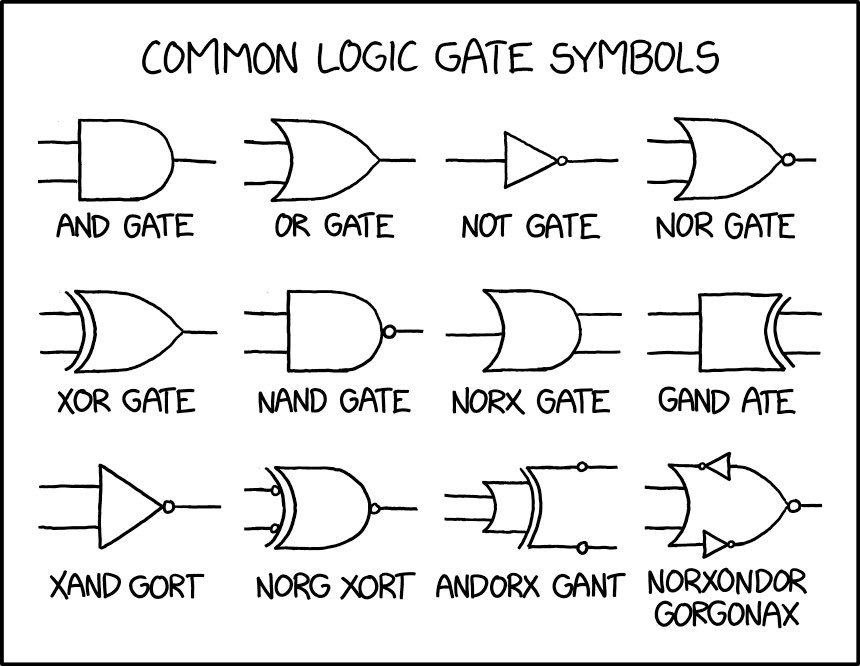
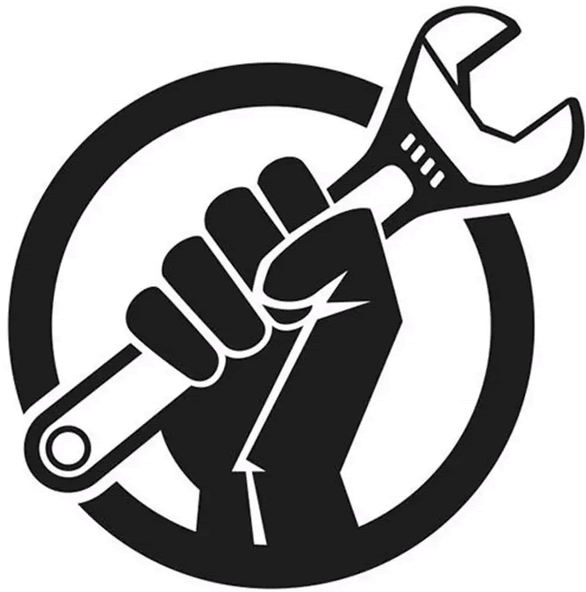
Apple's Repair Kit

